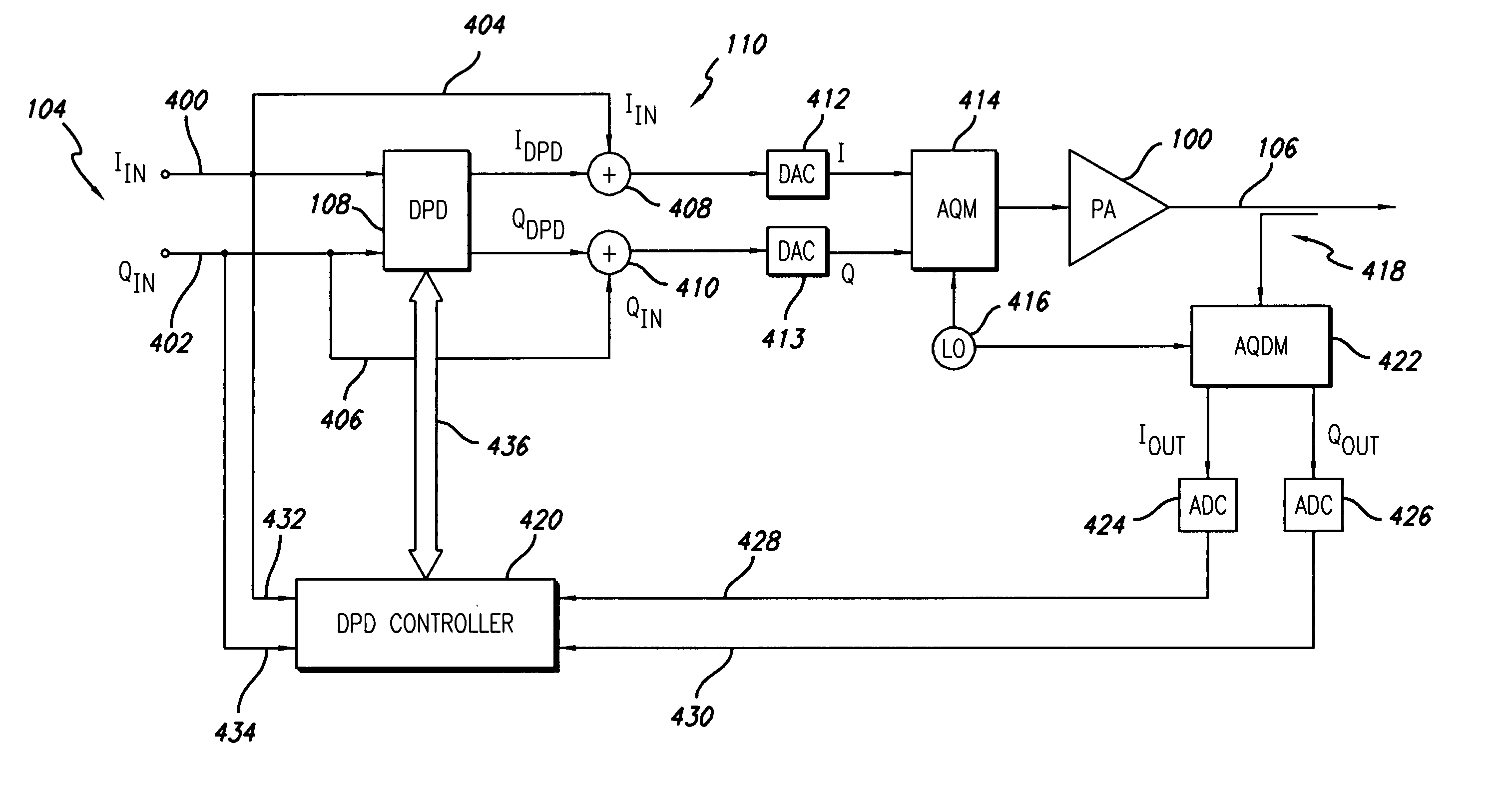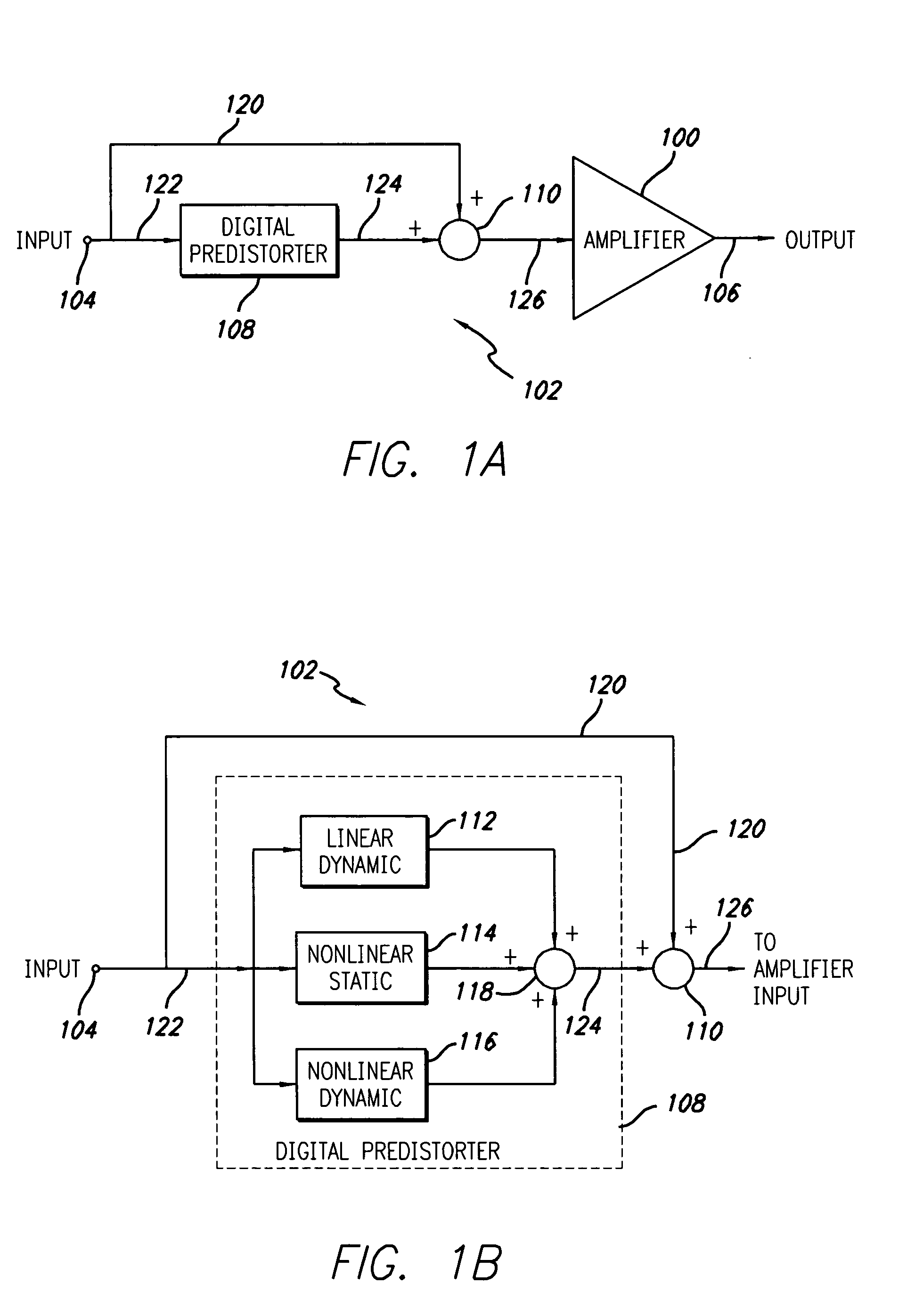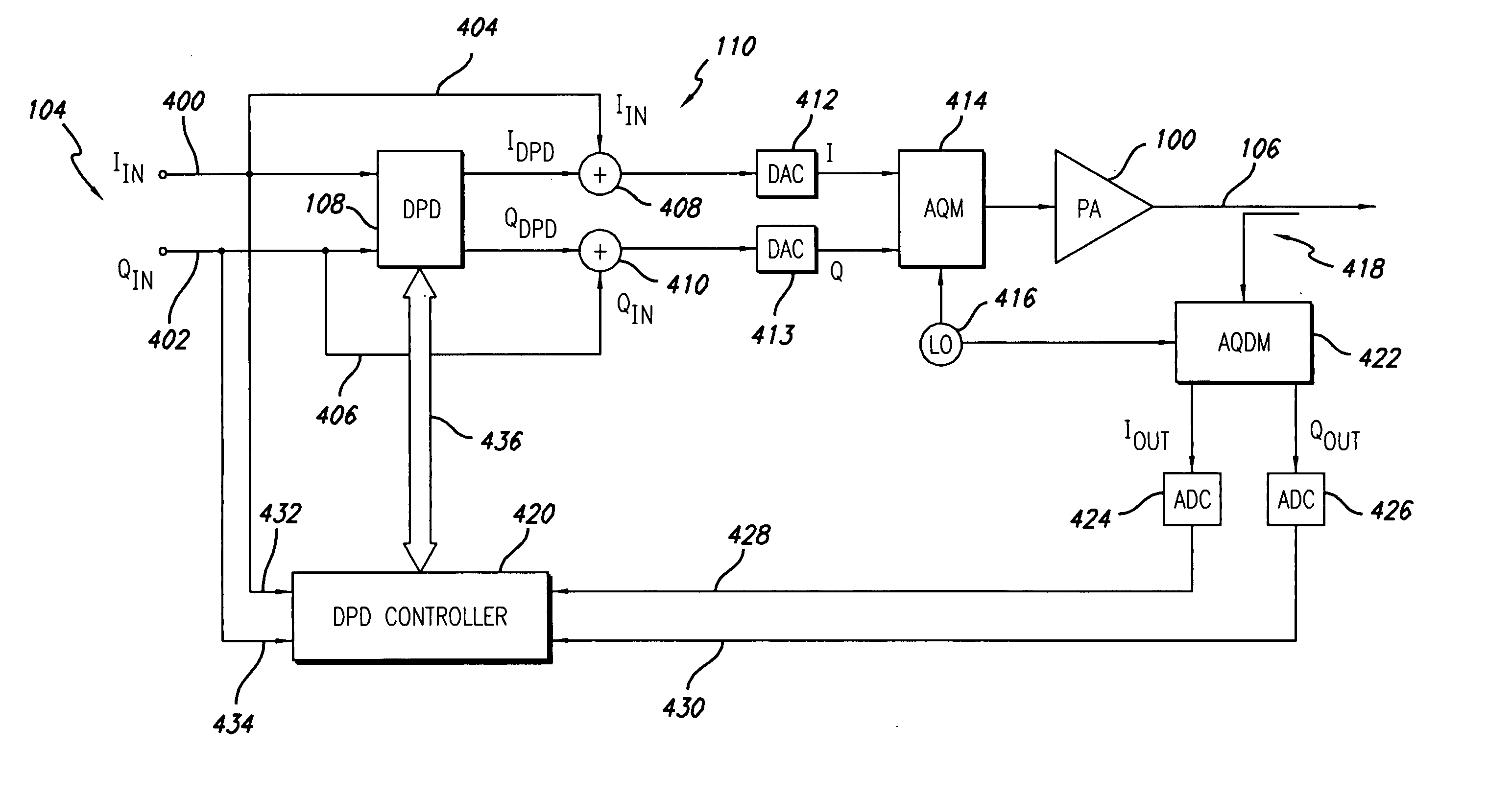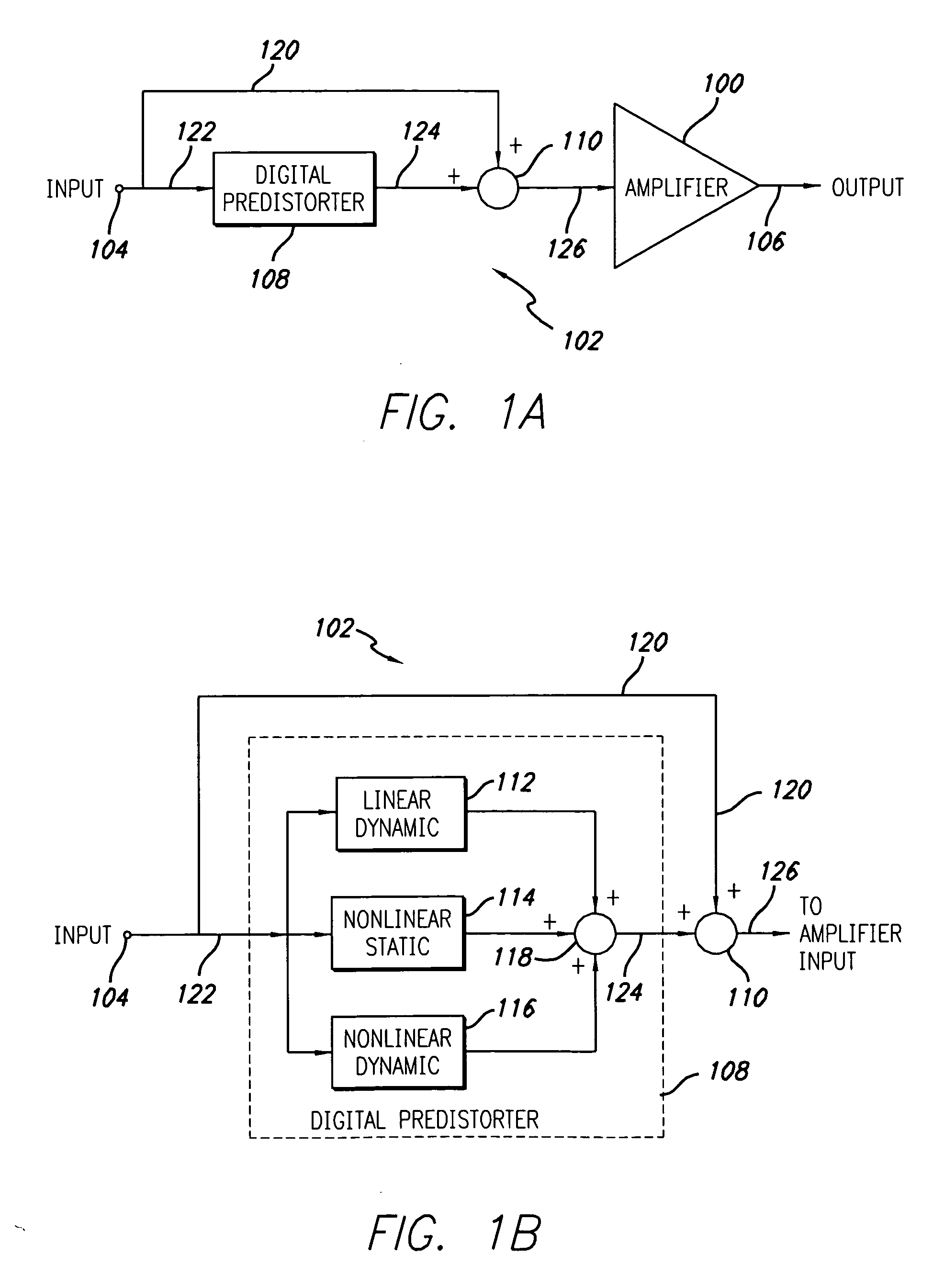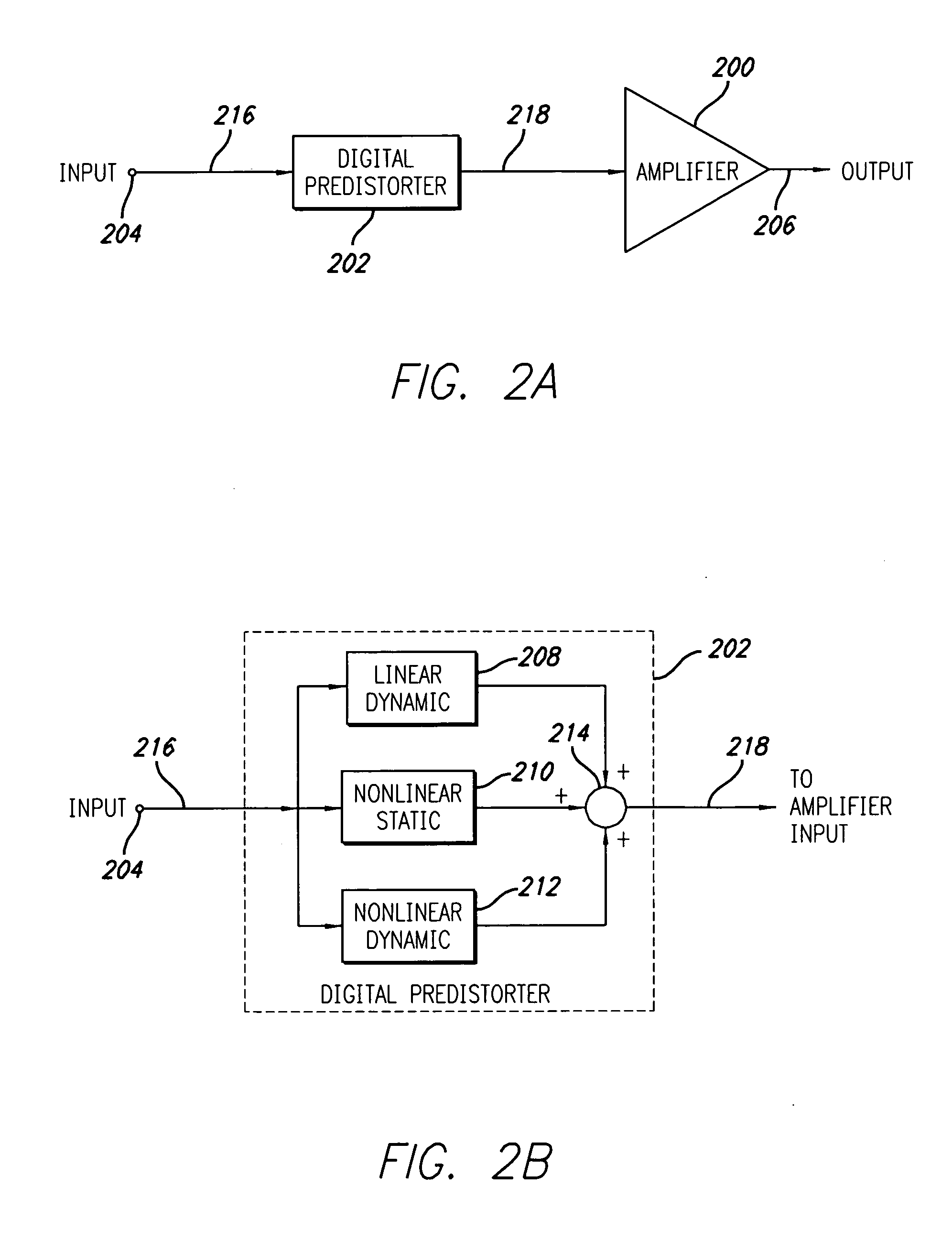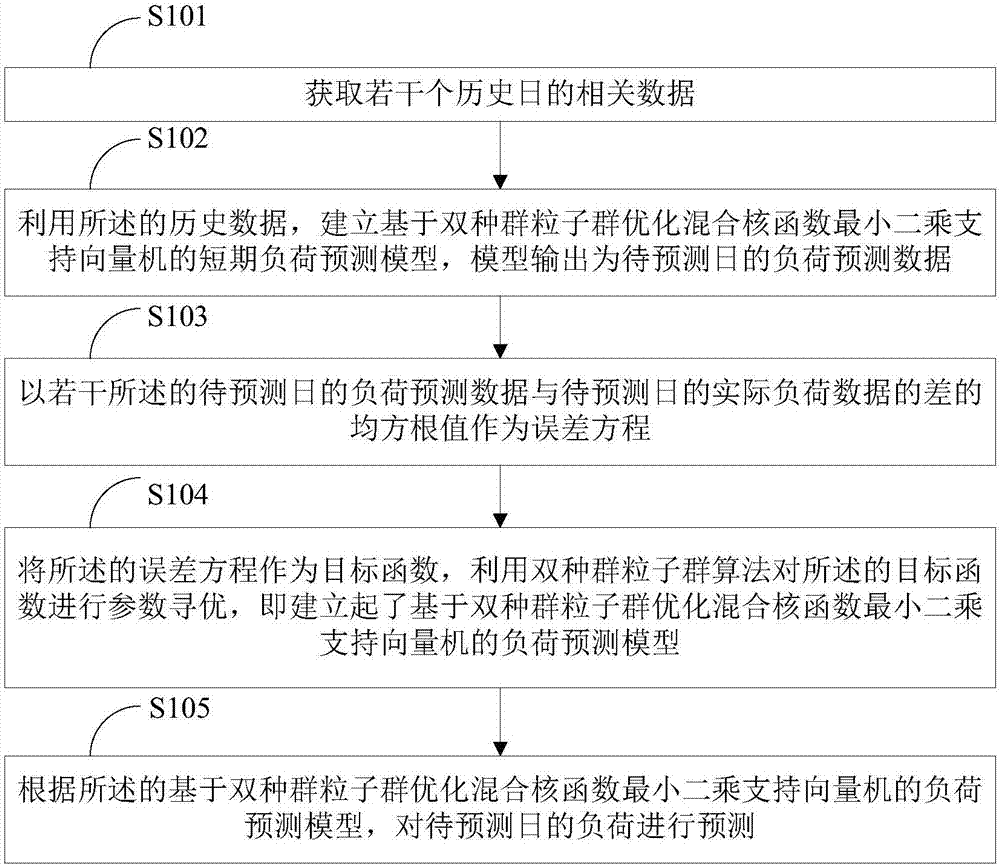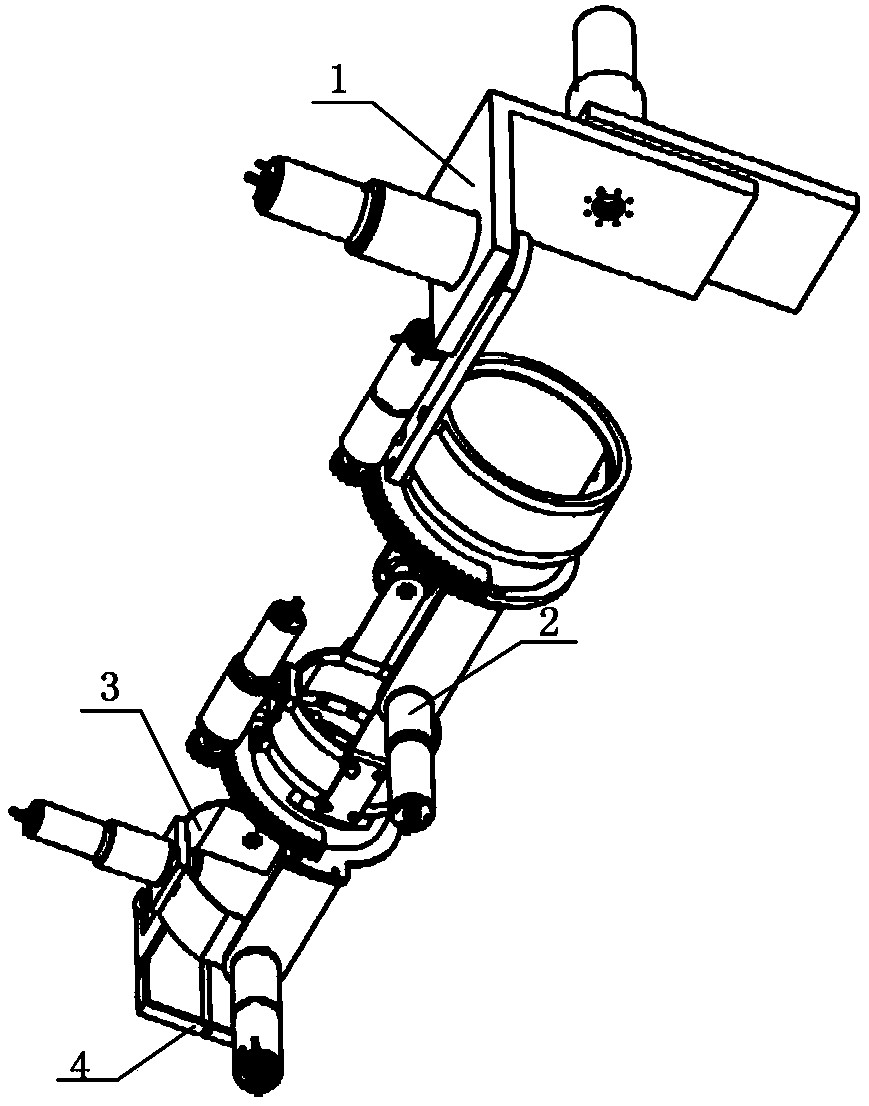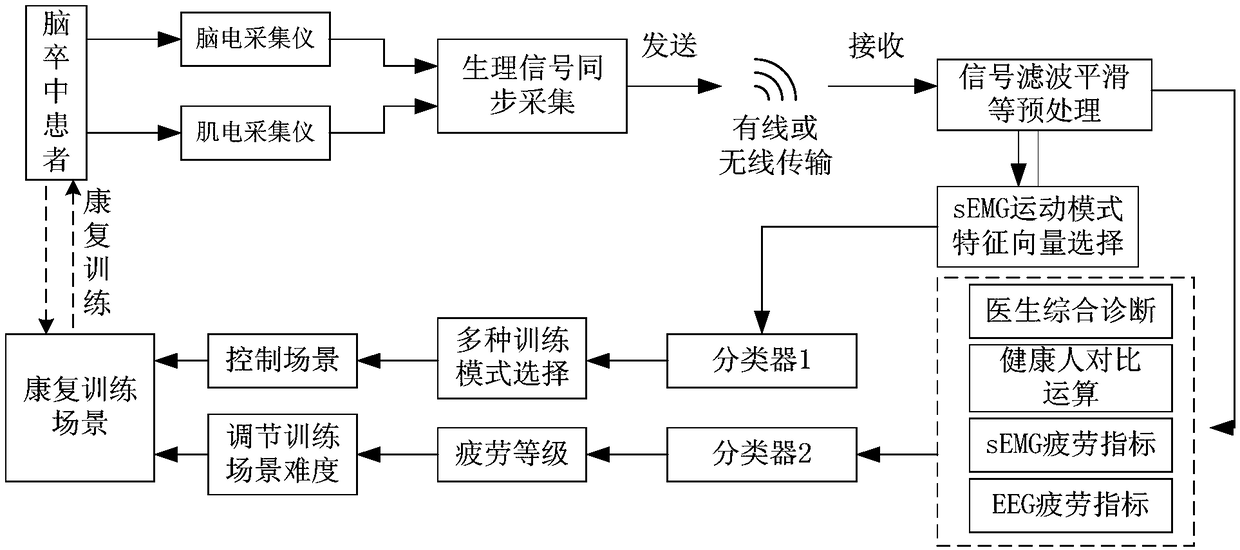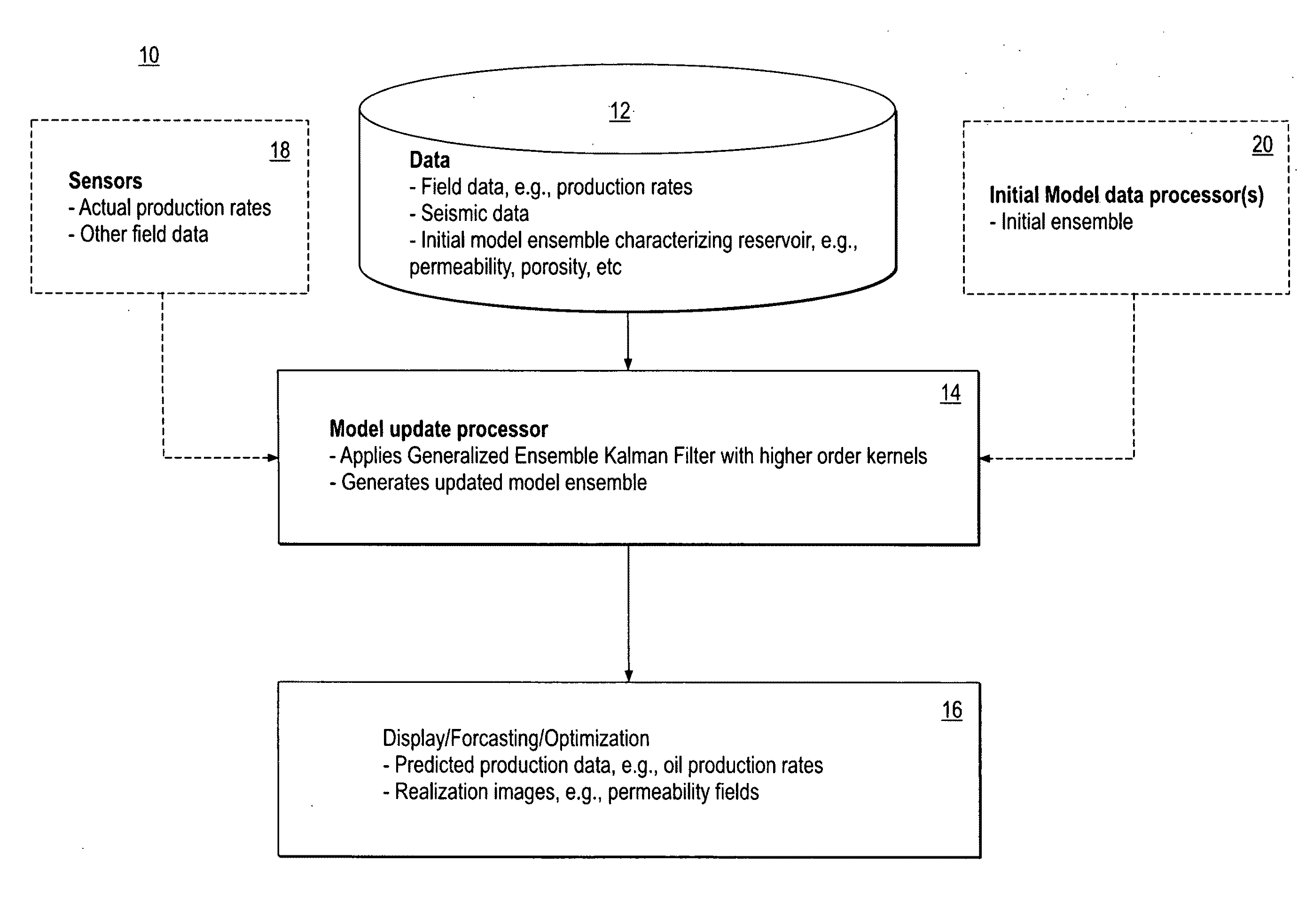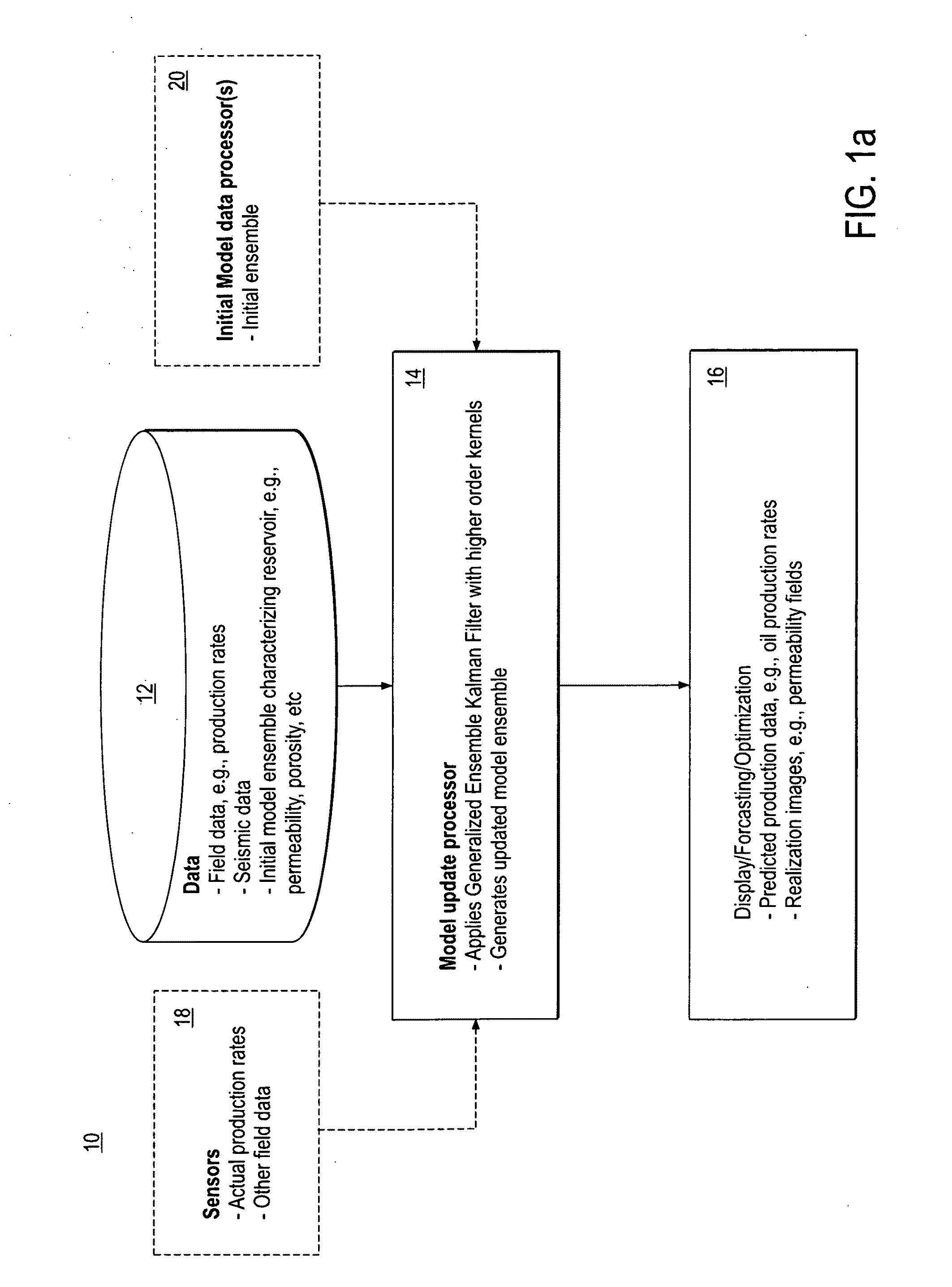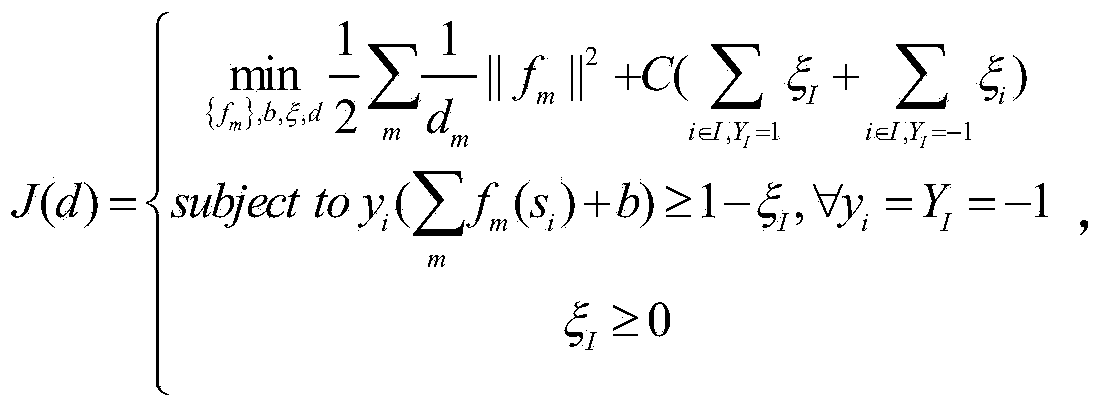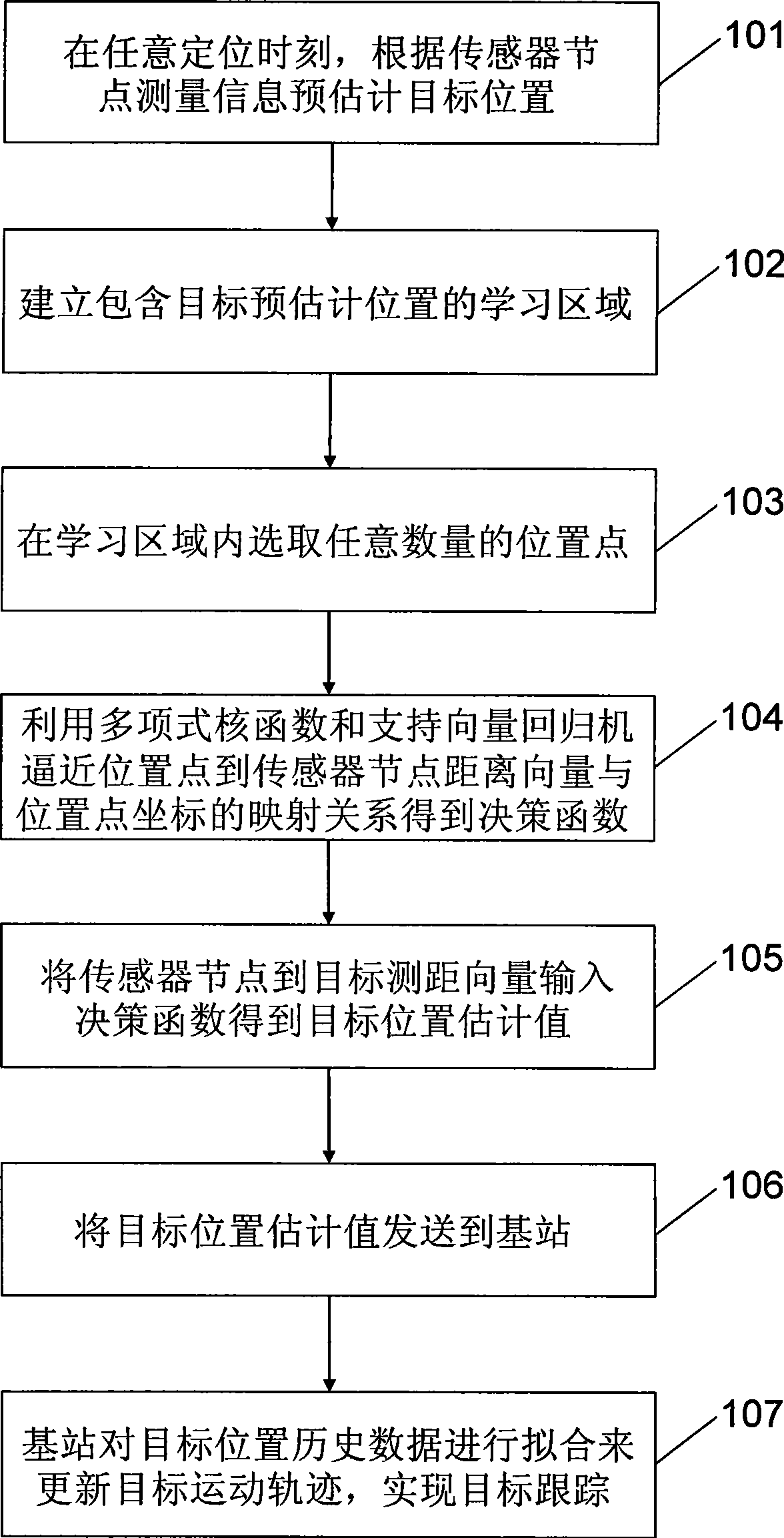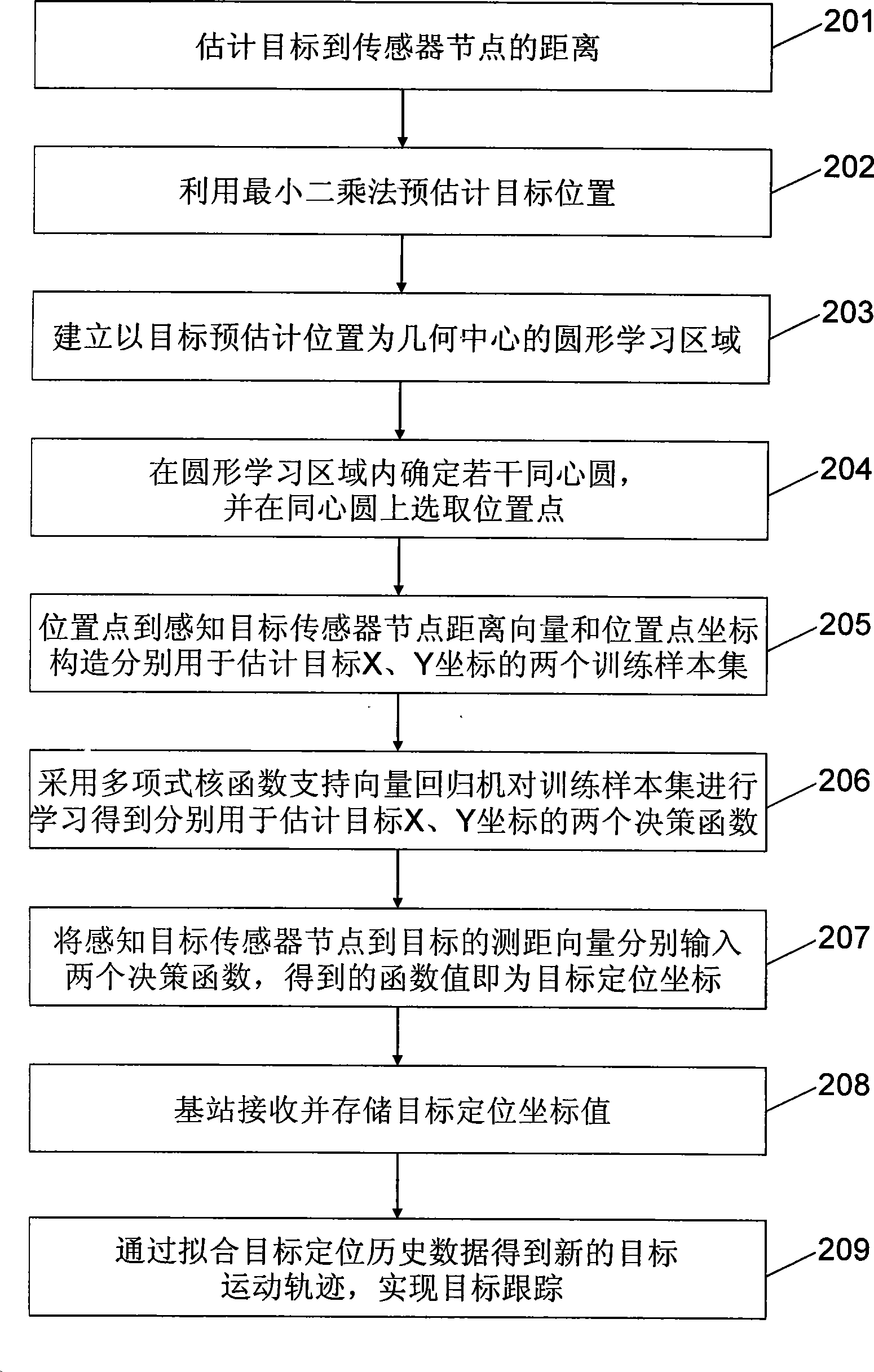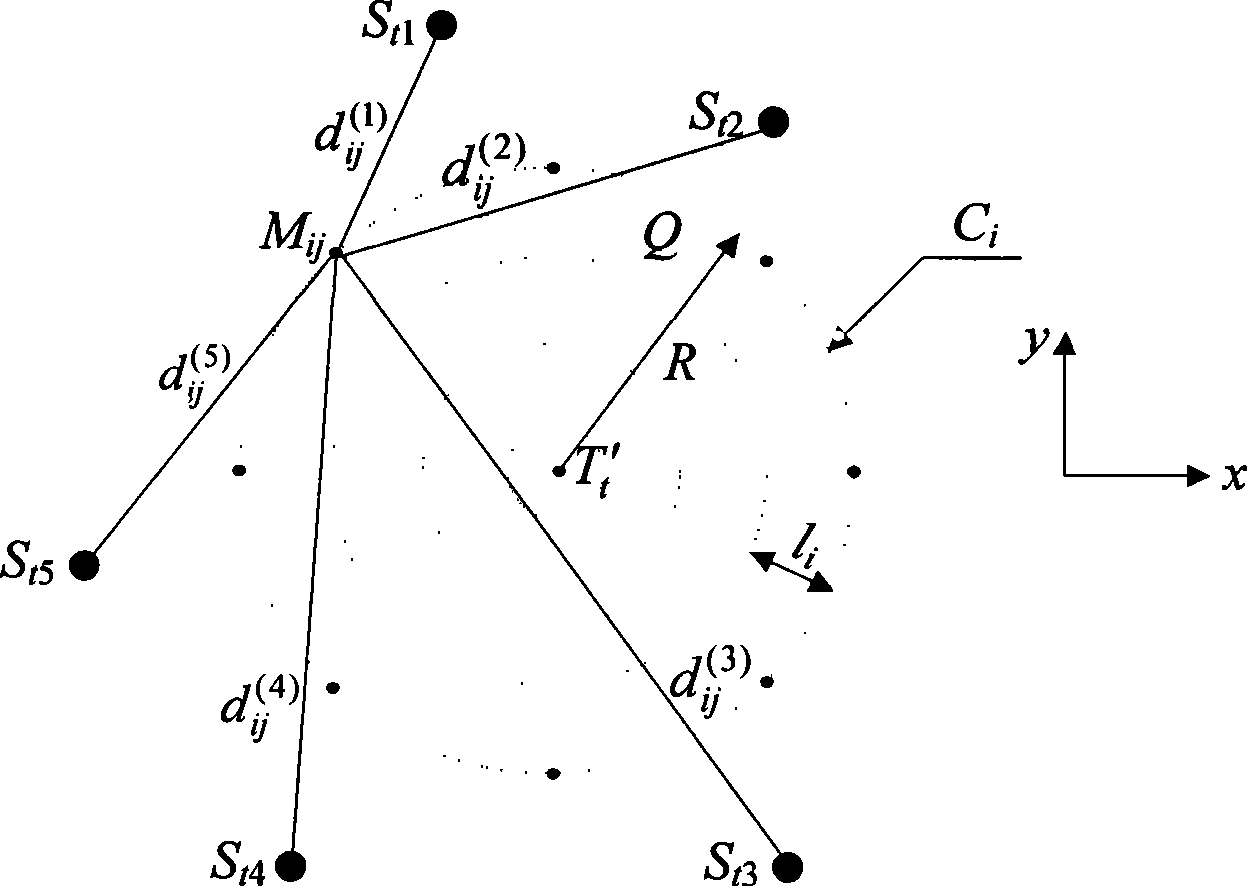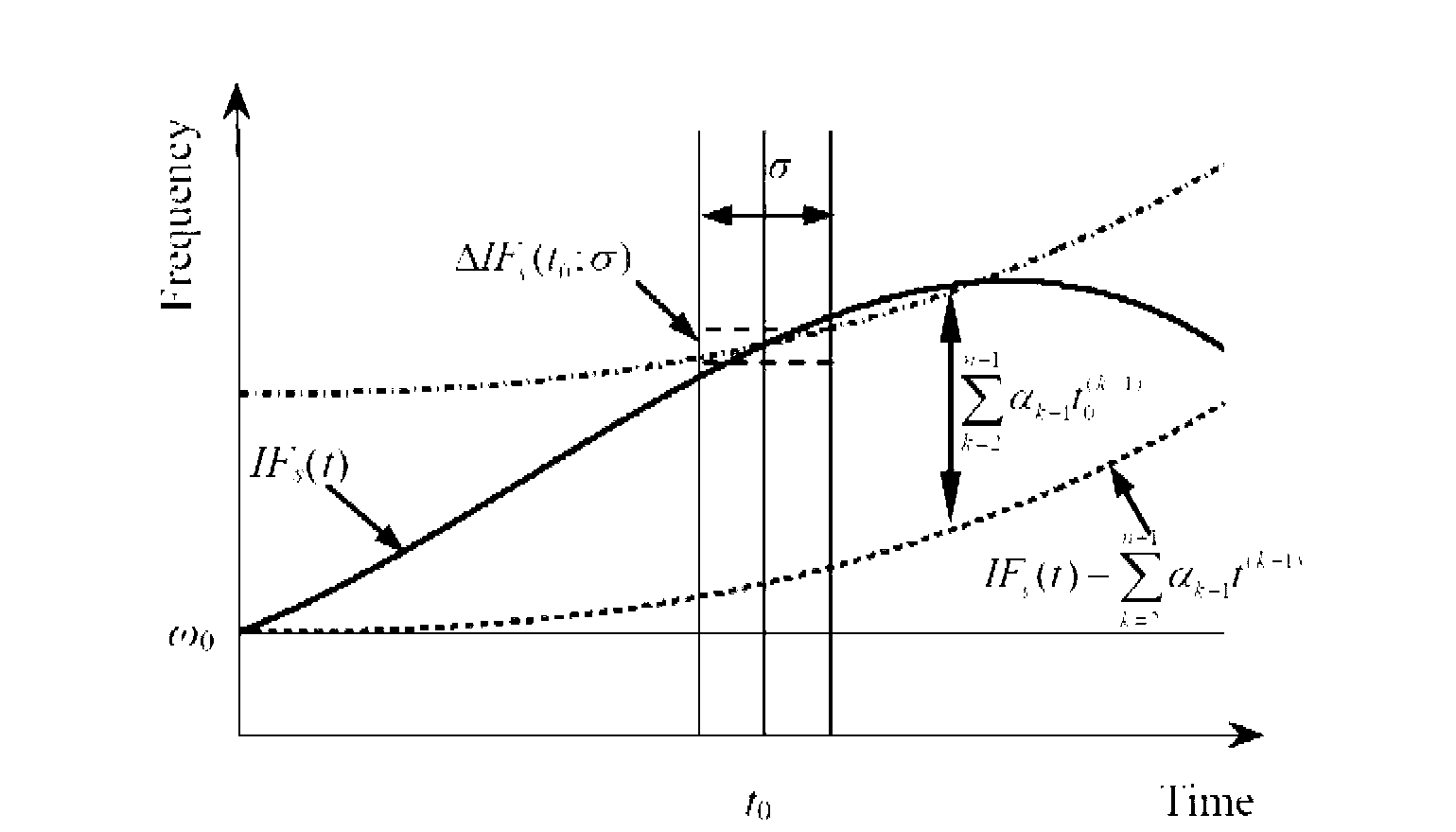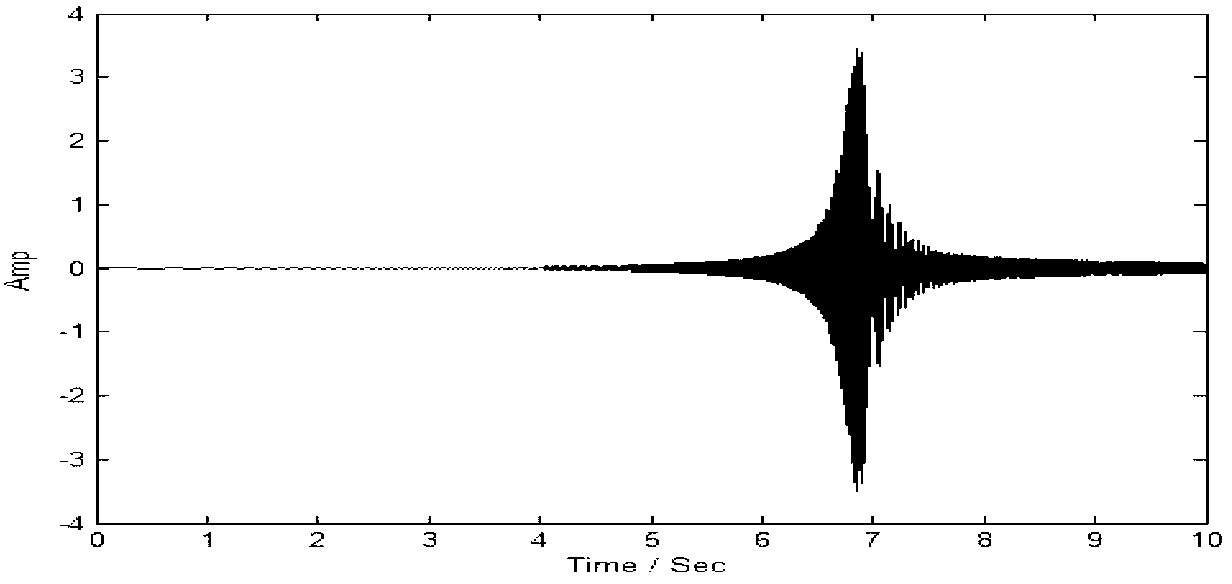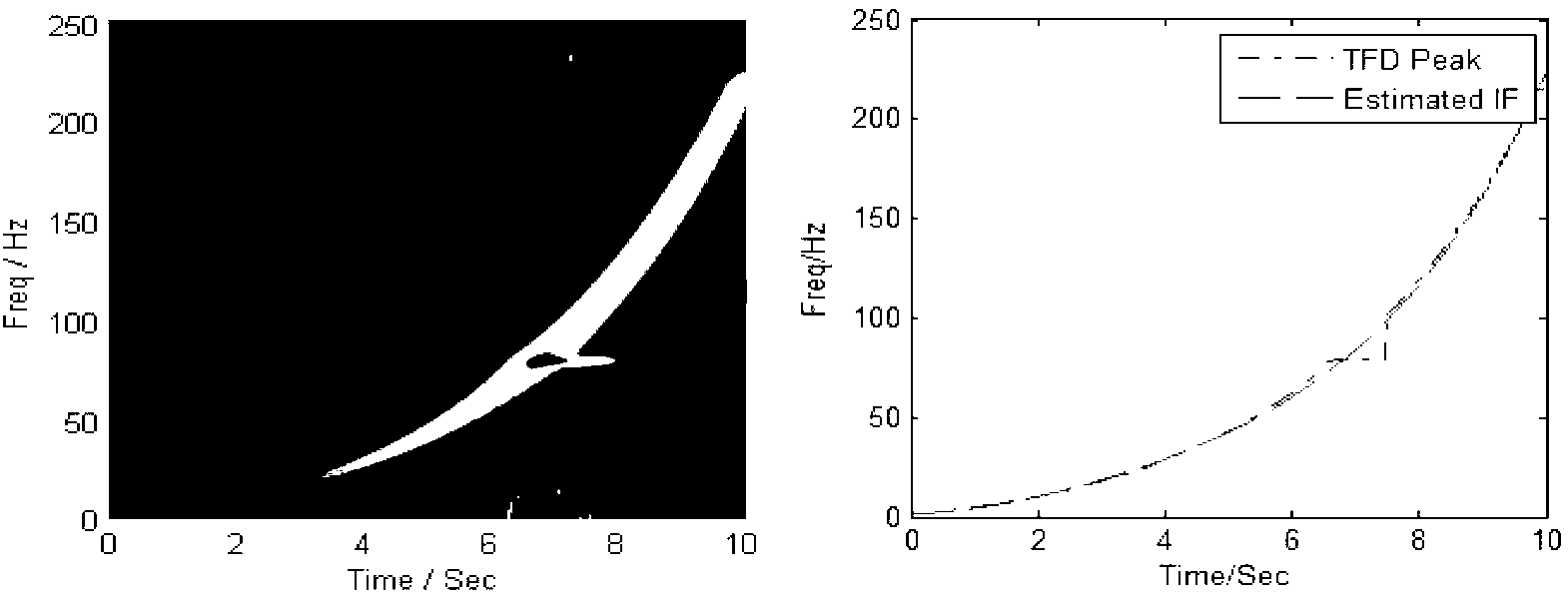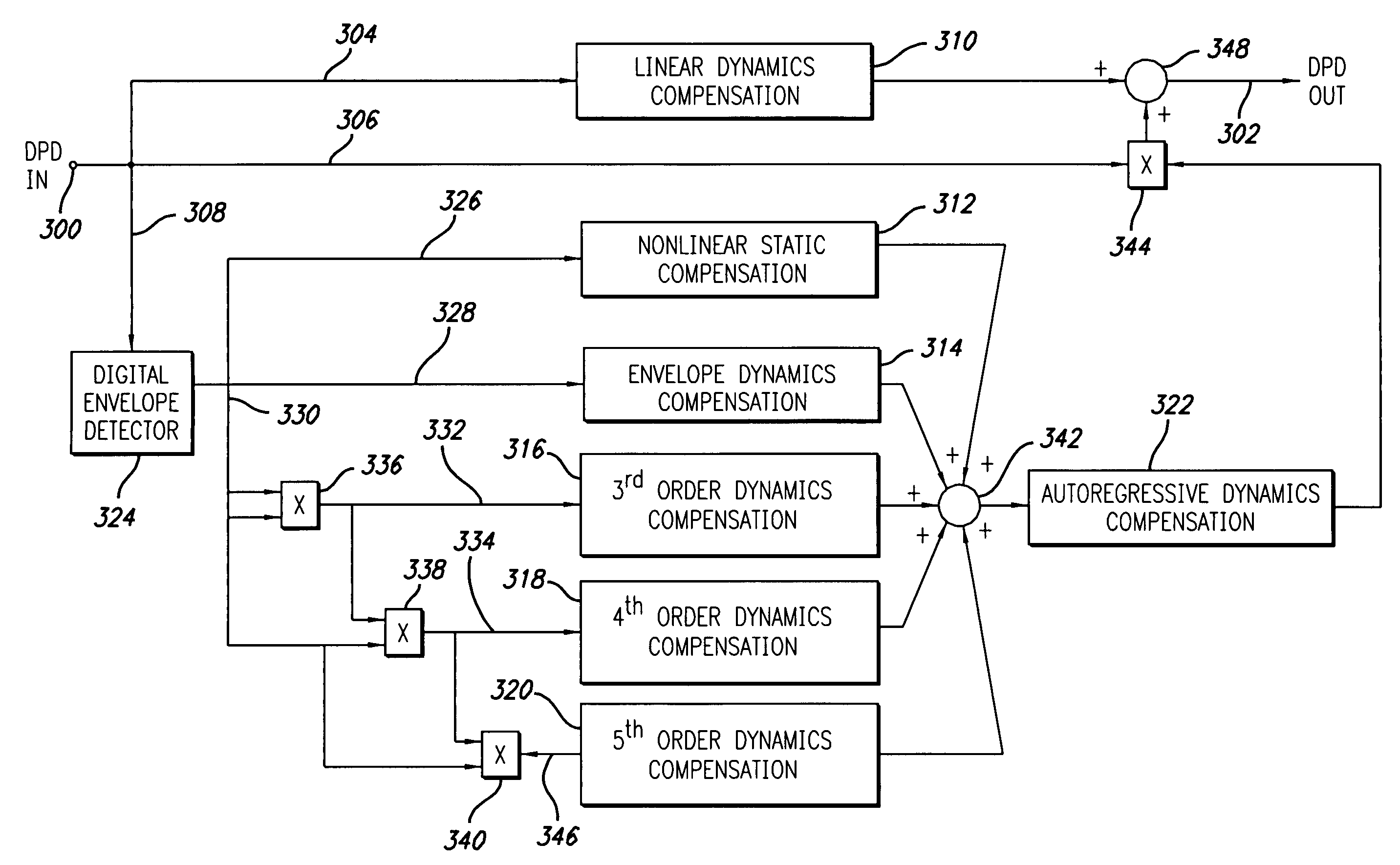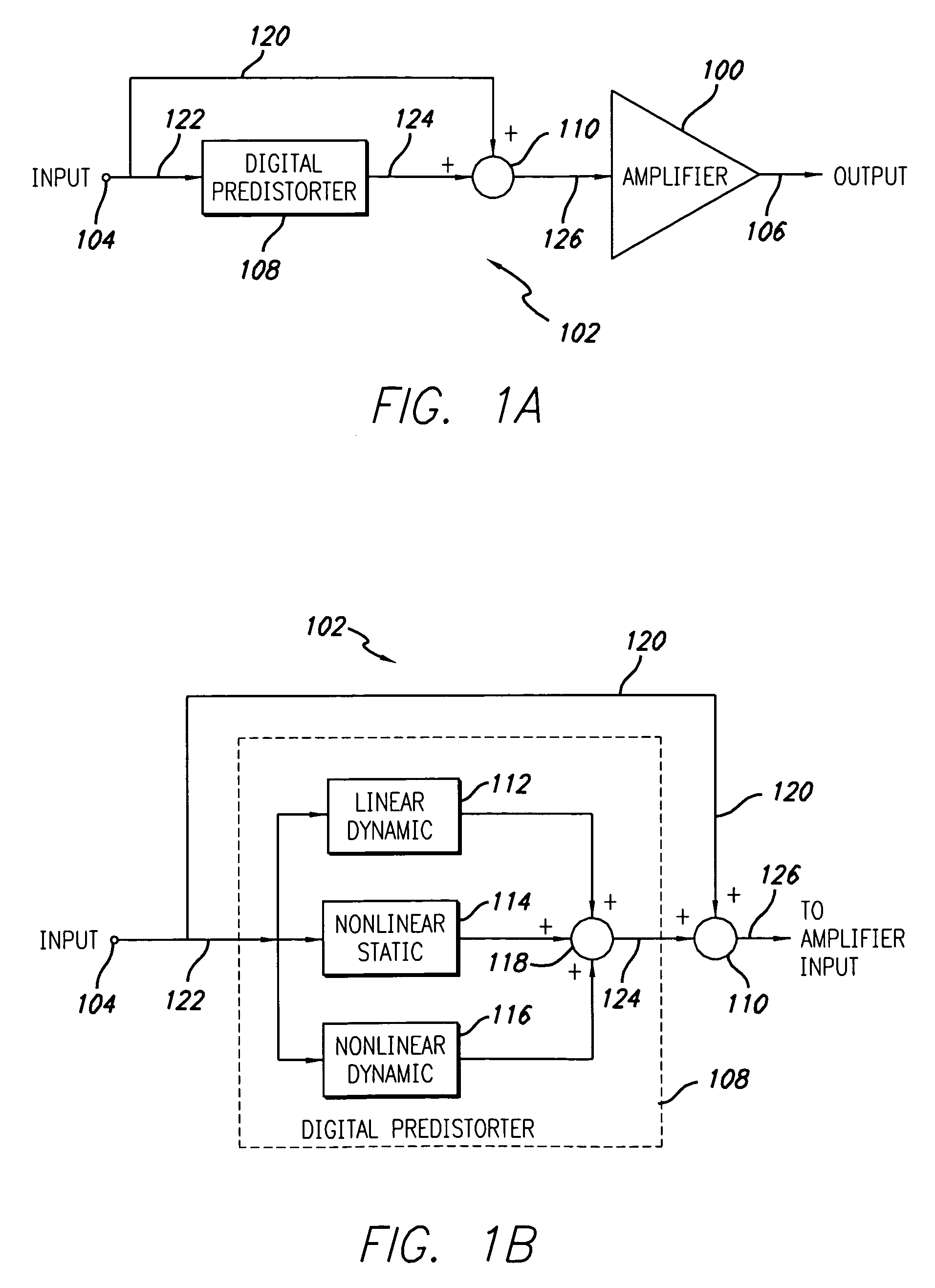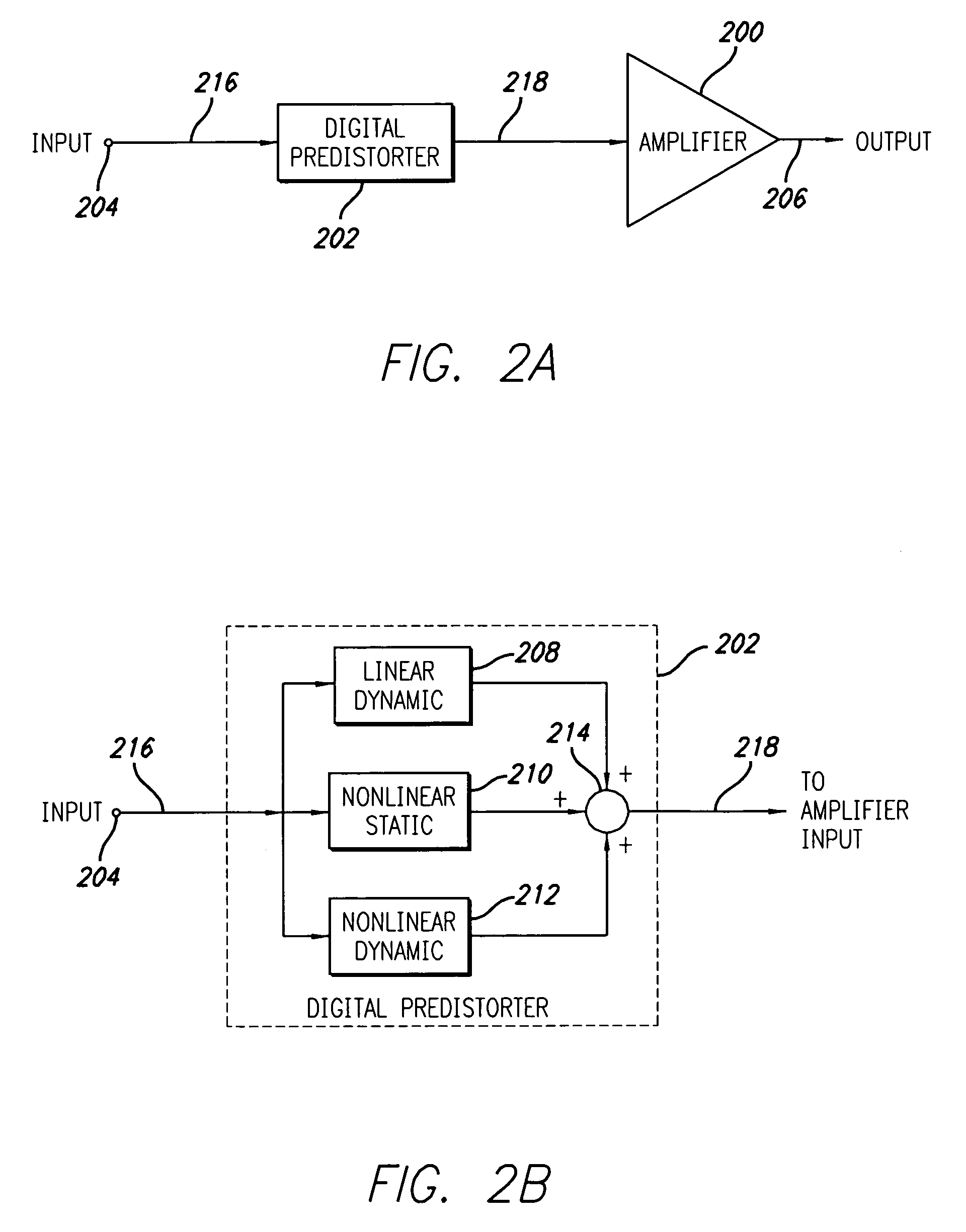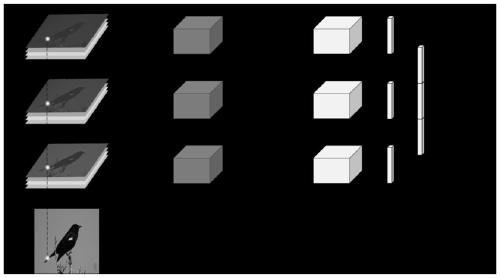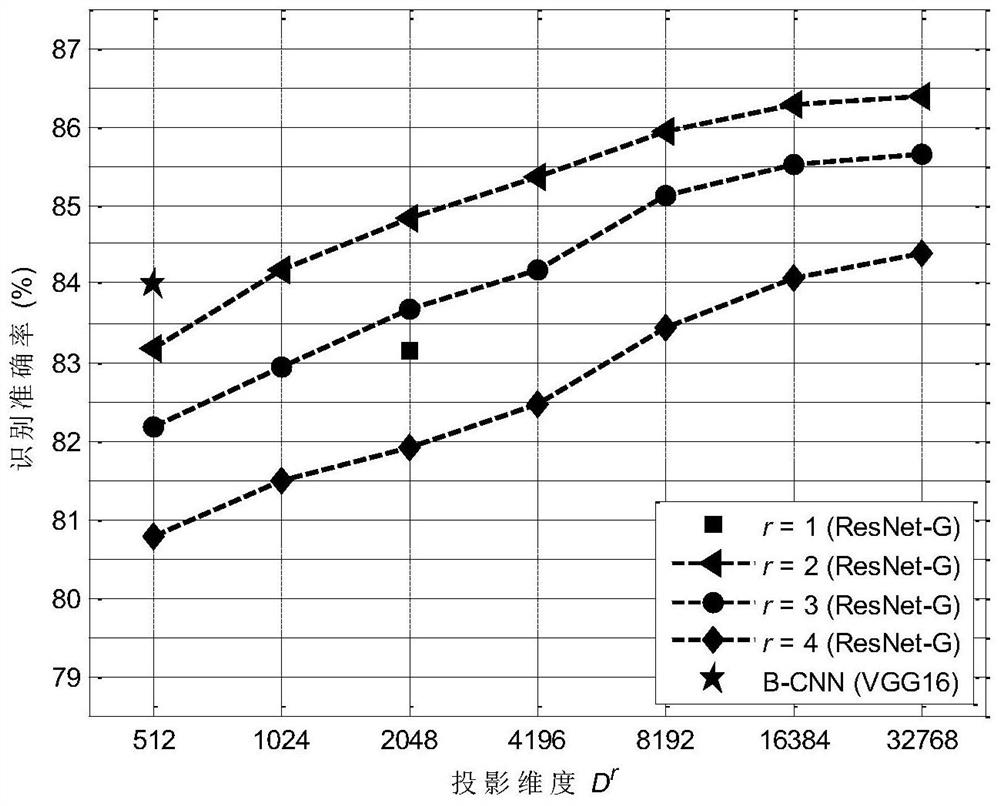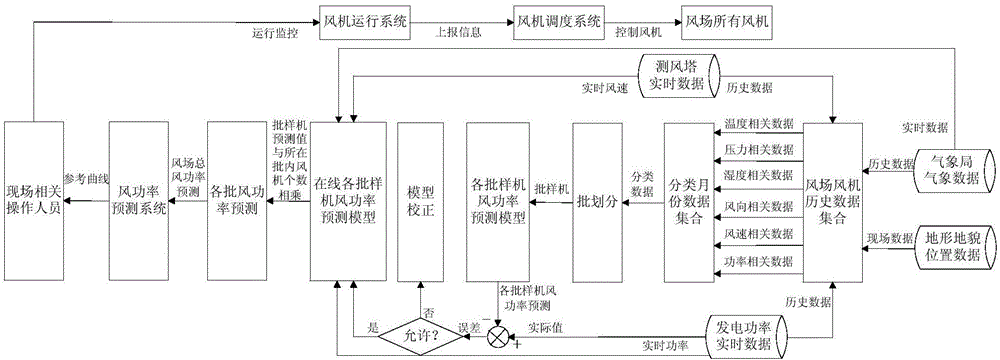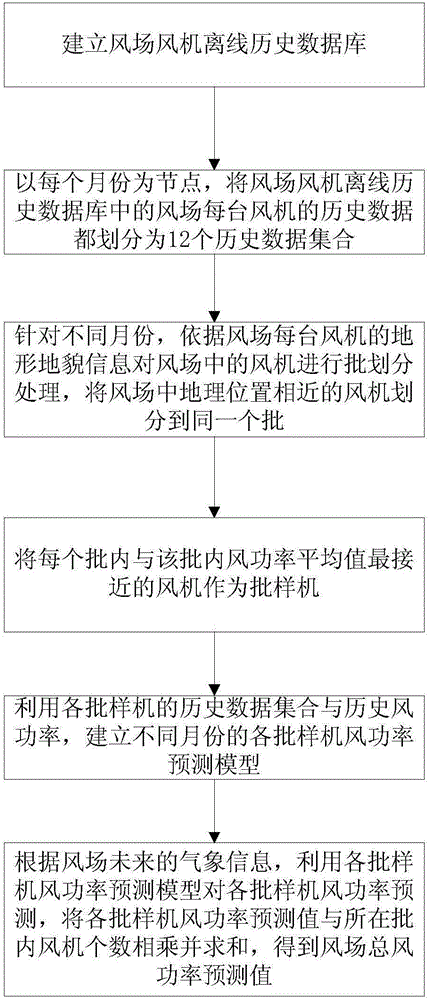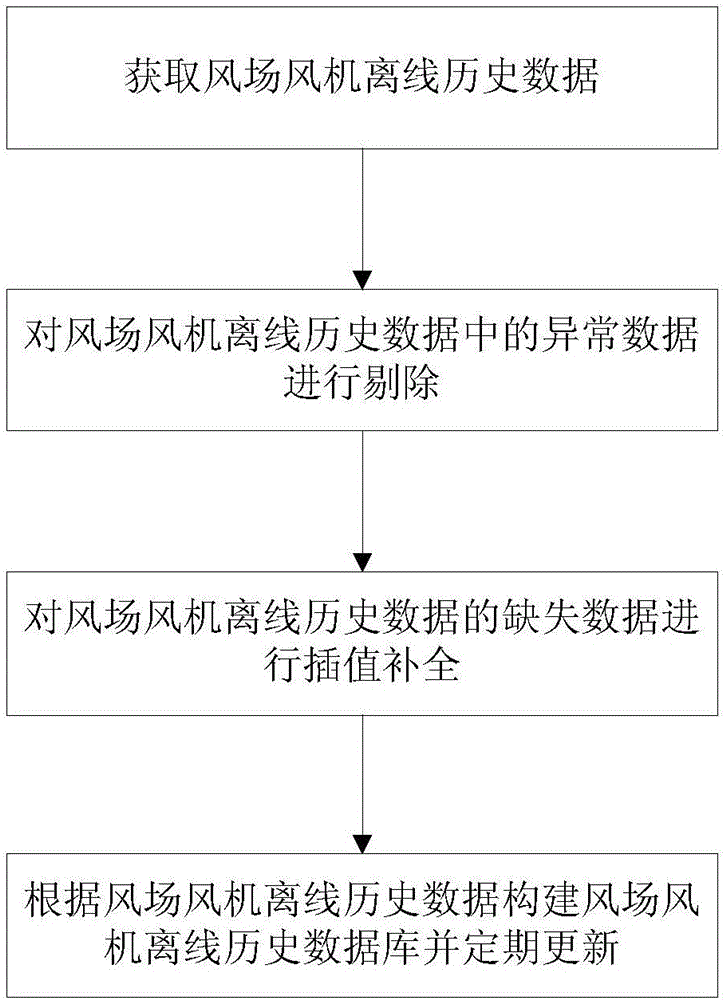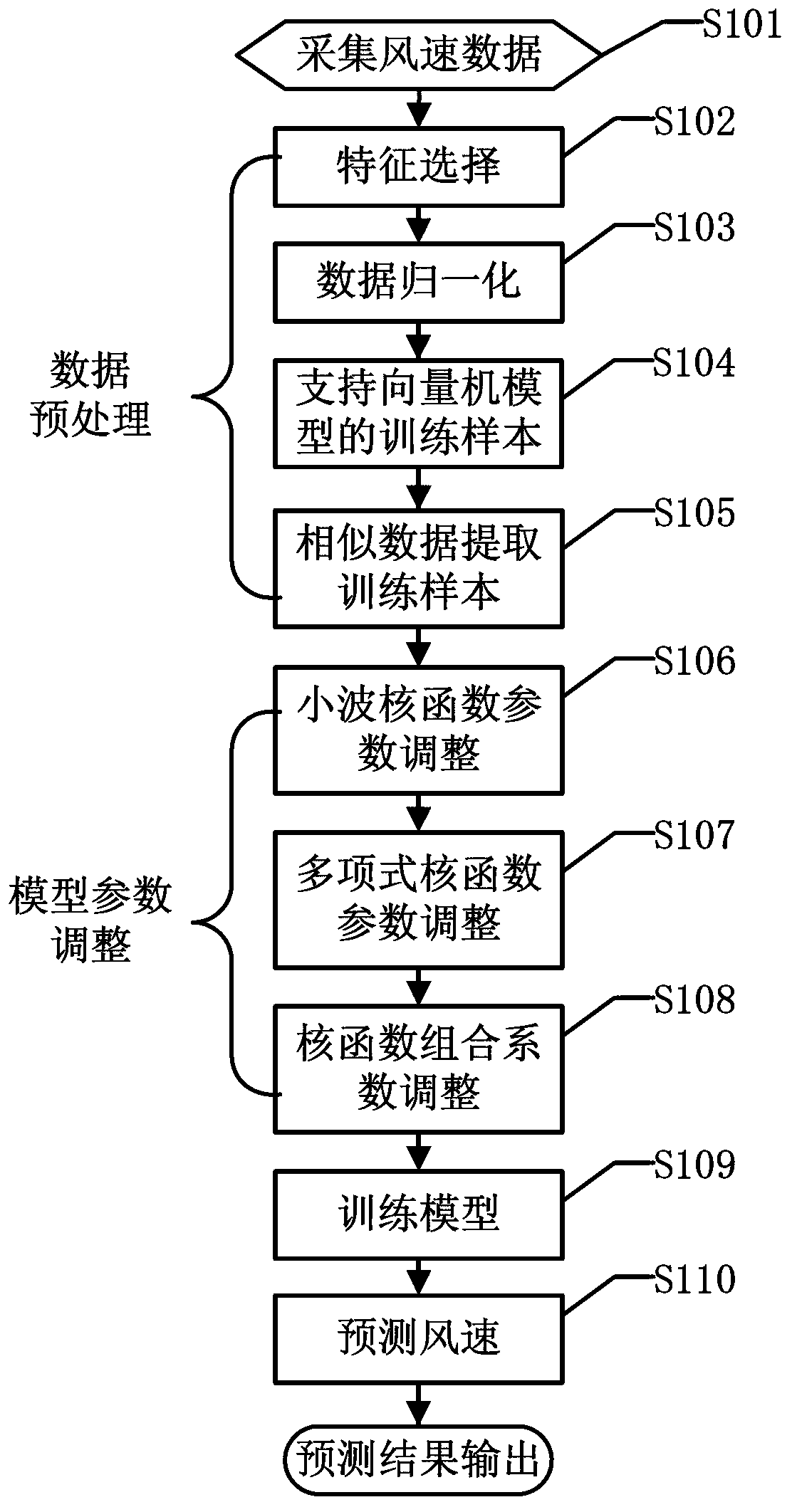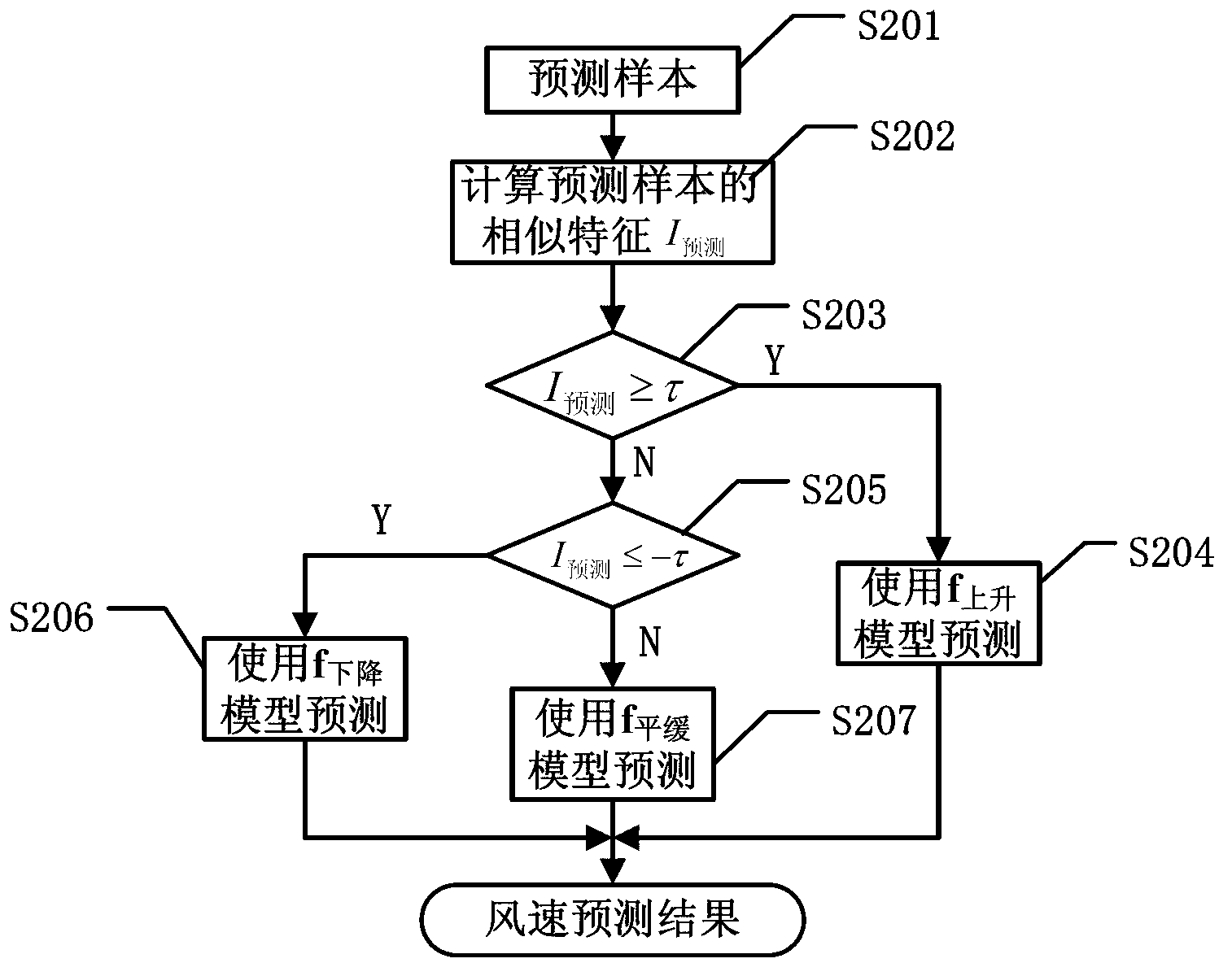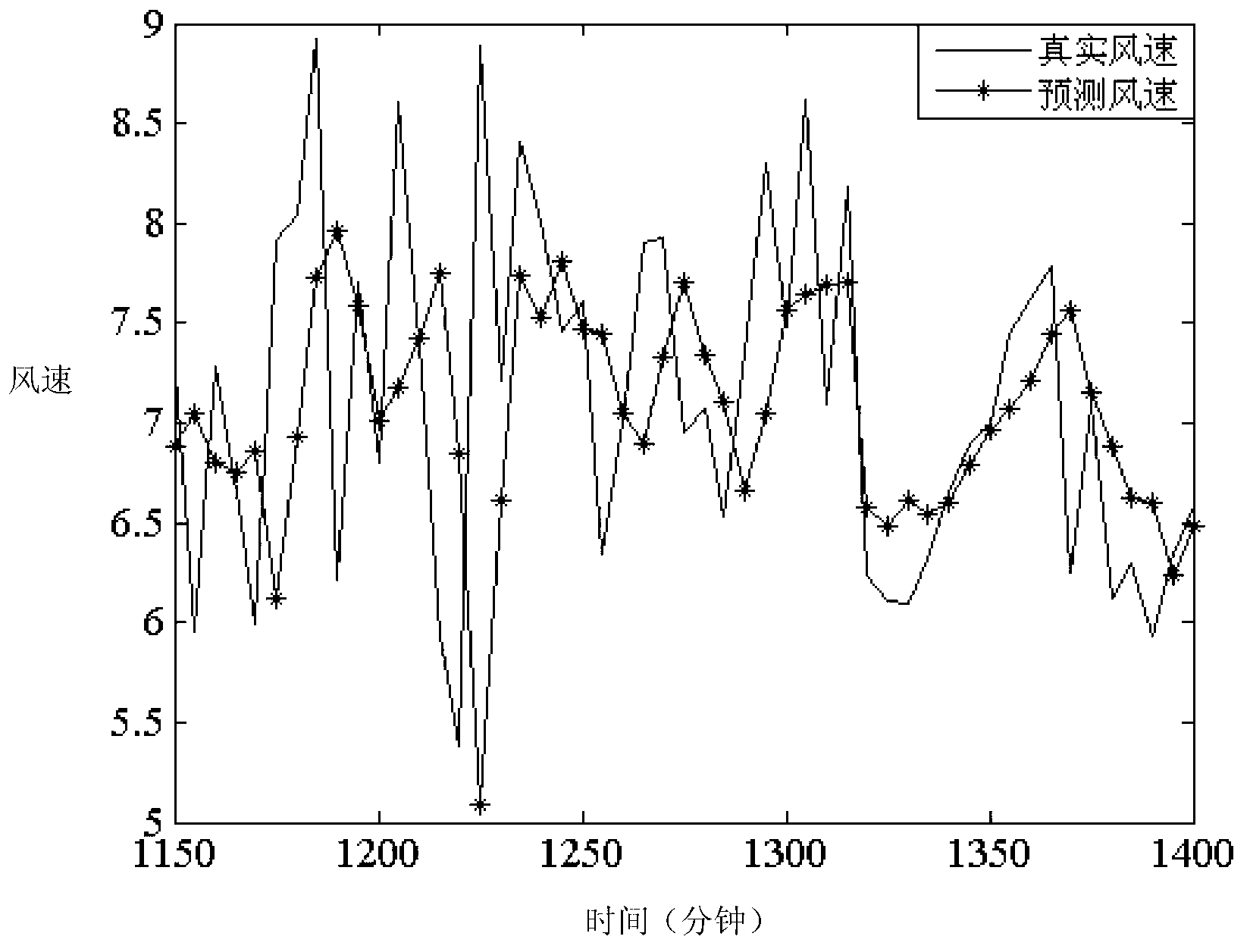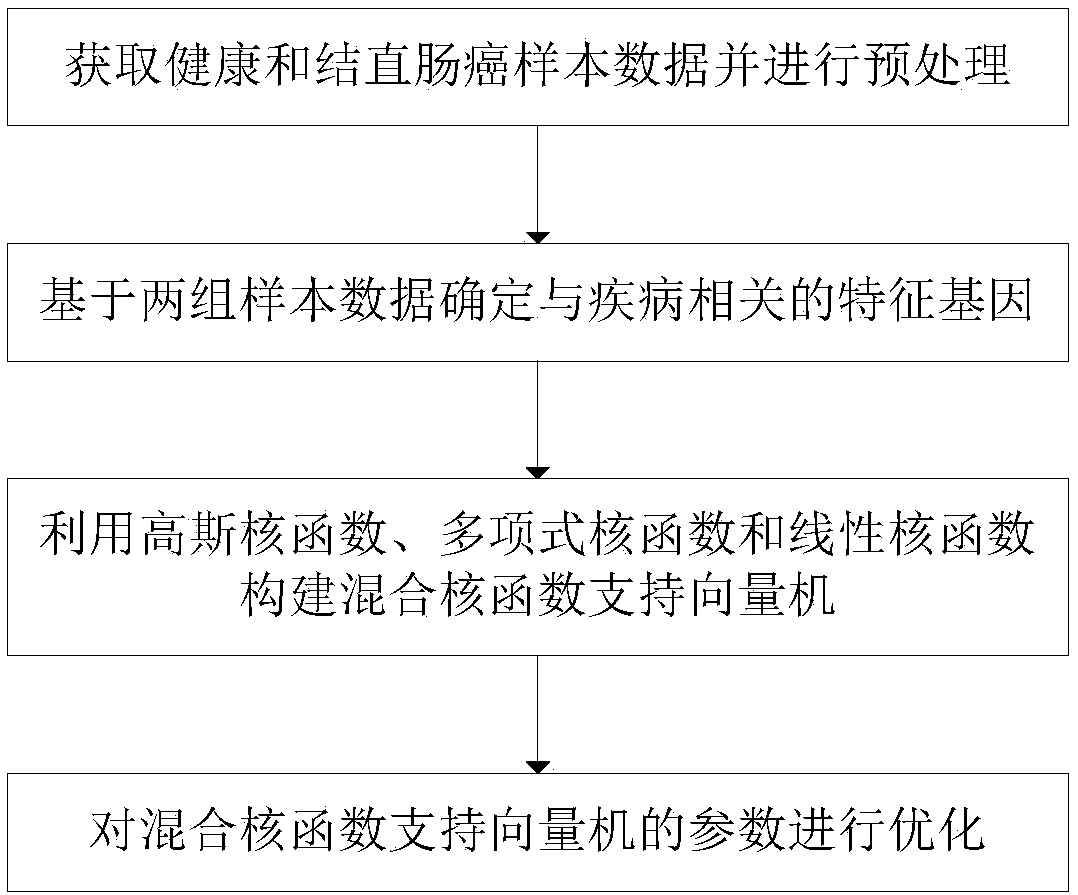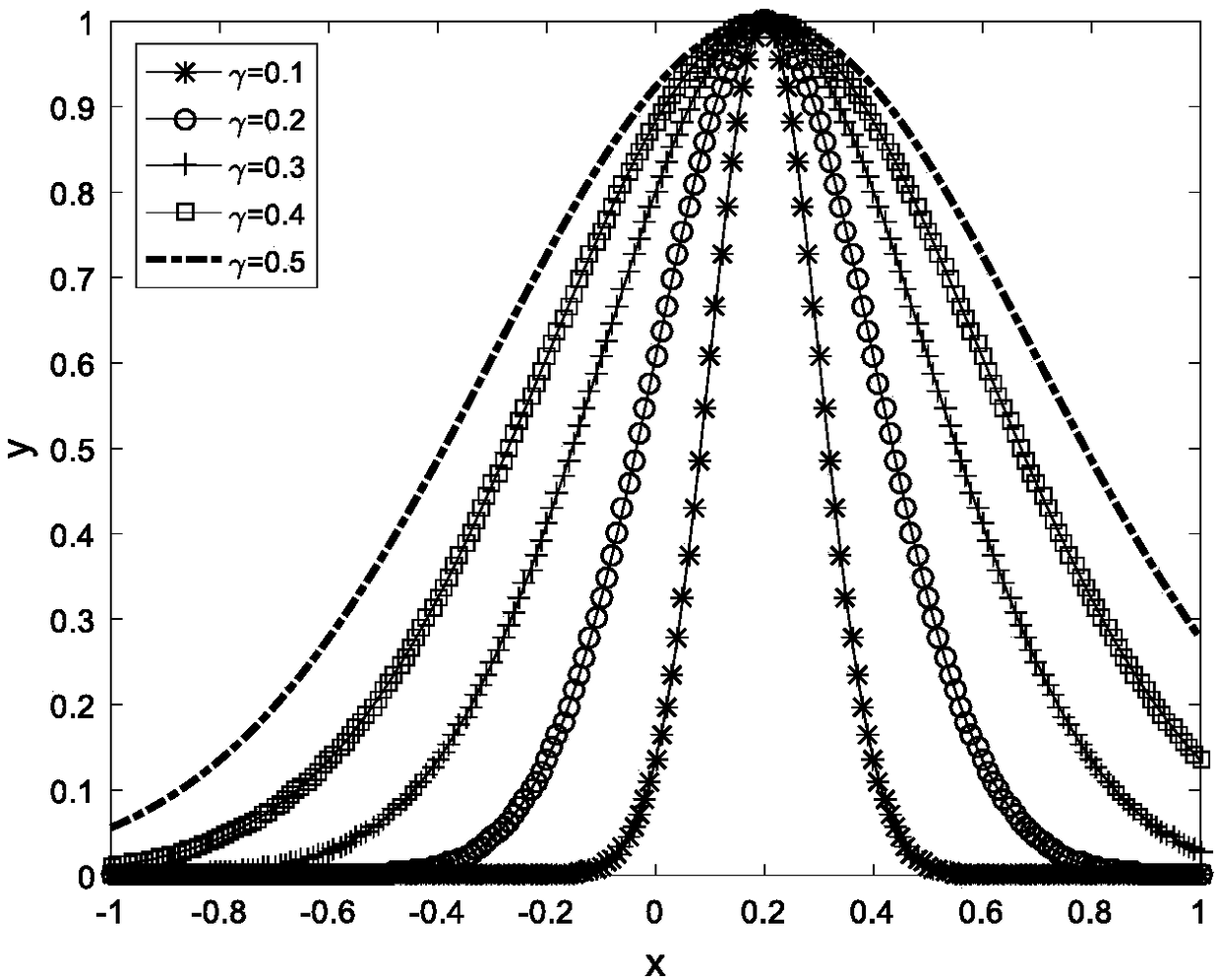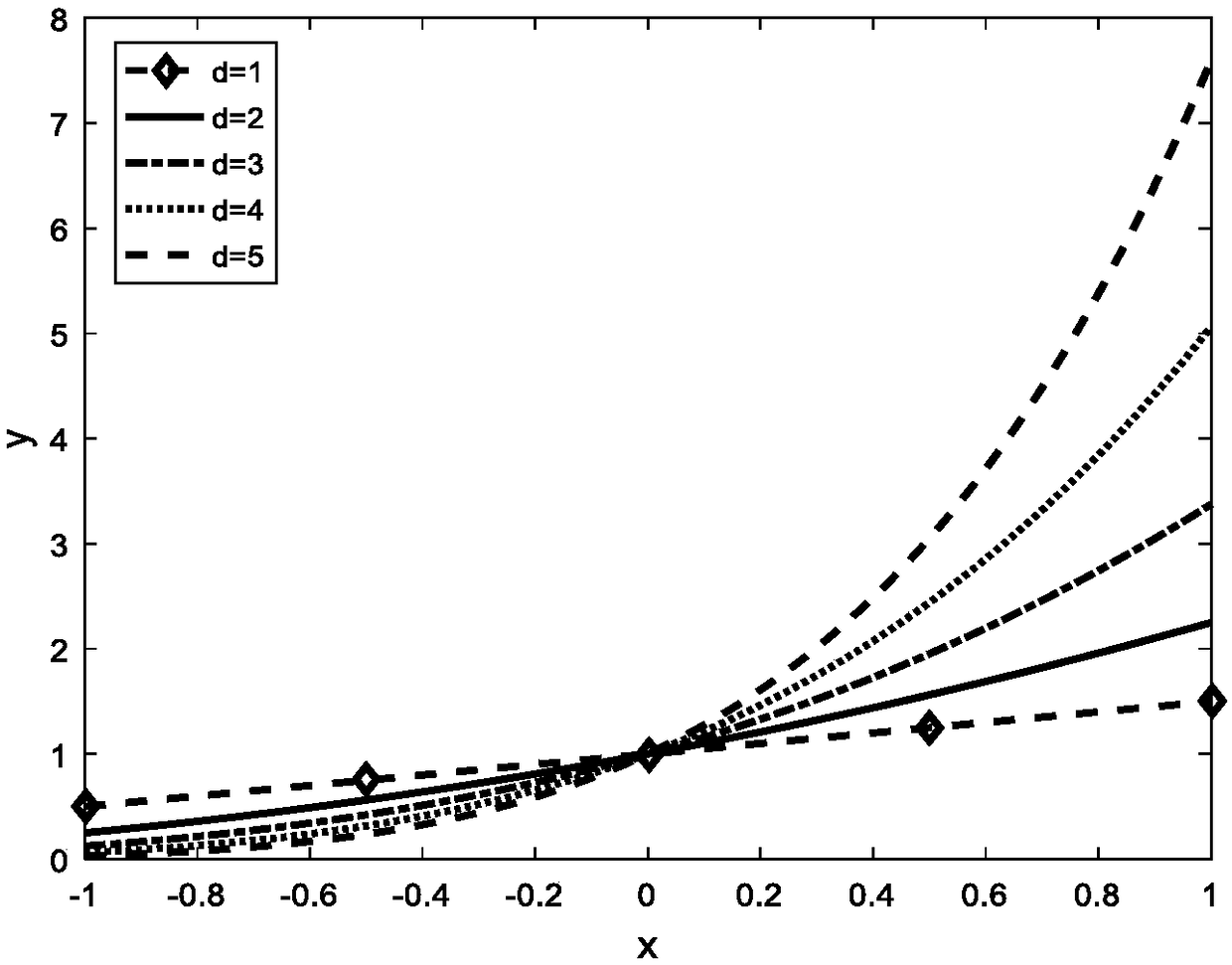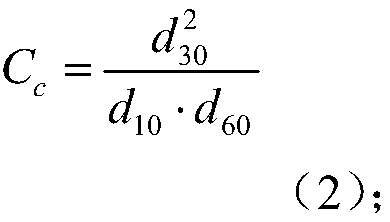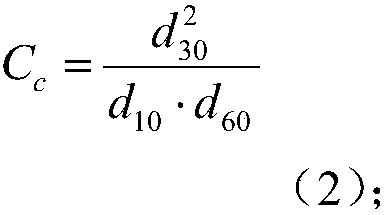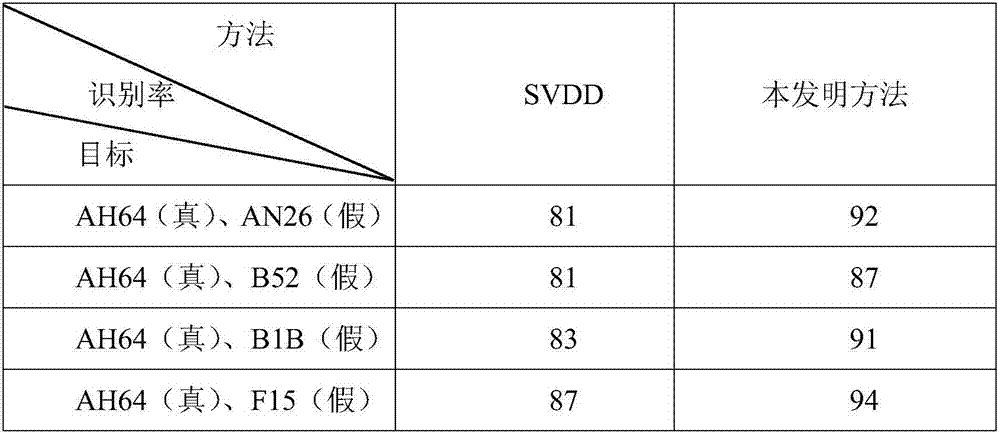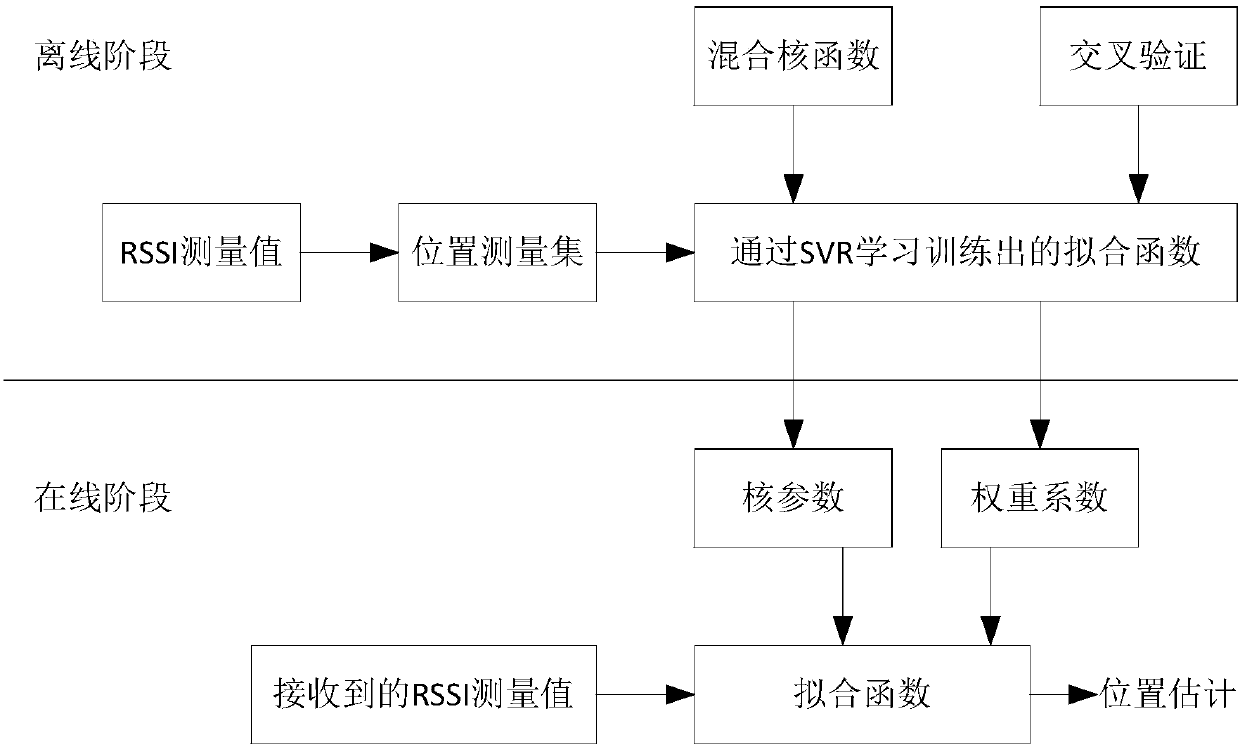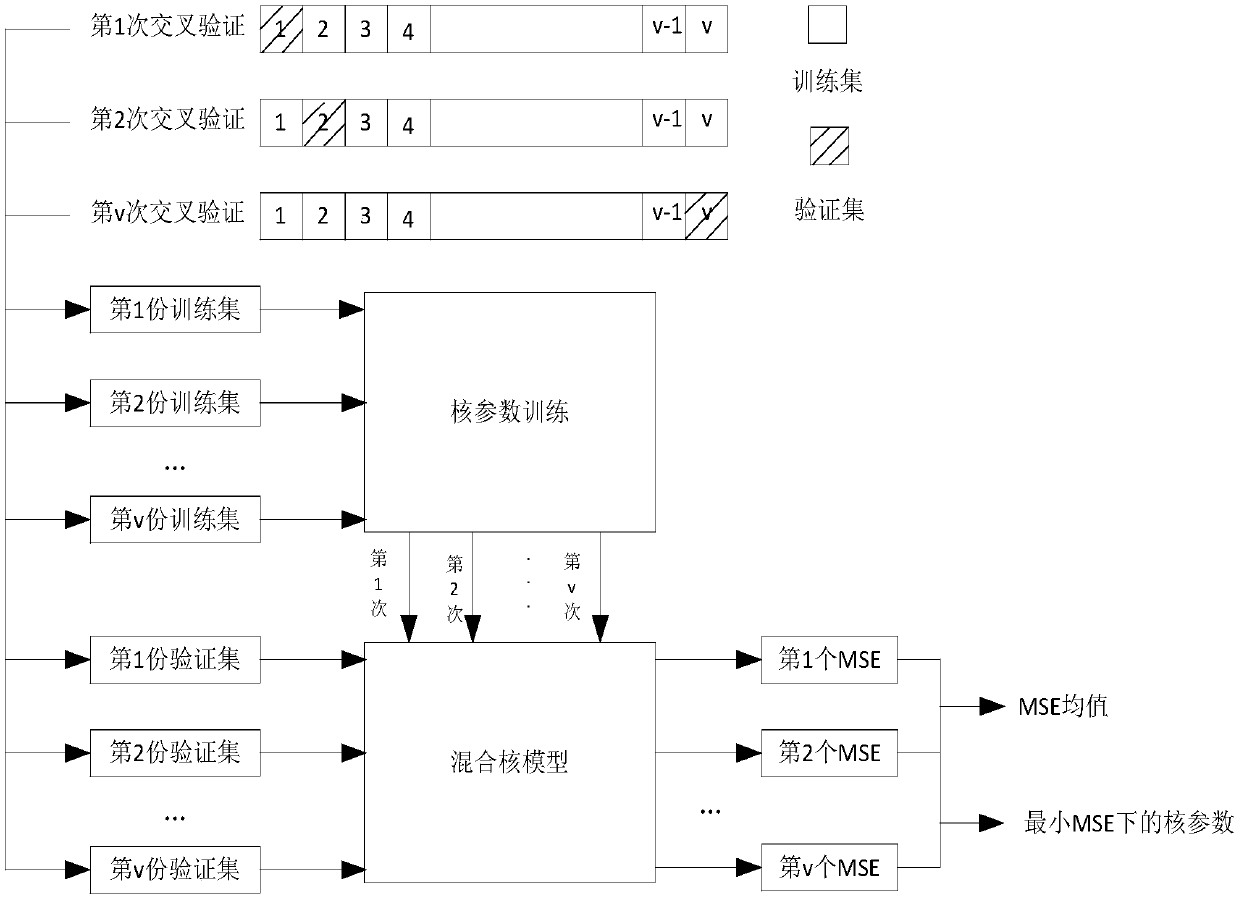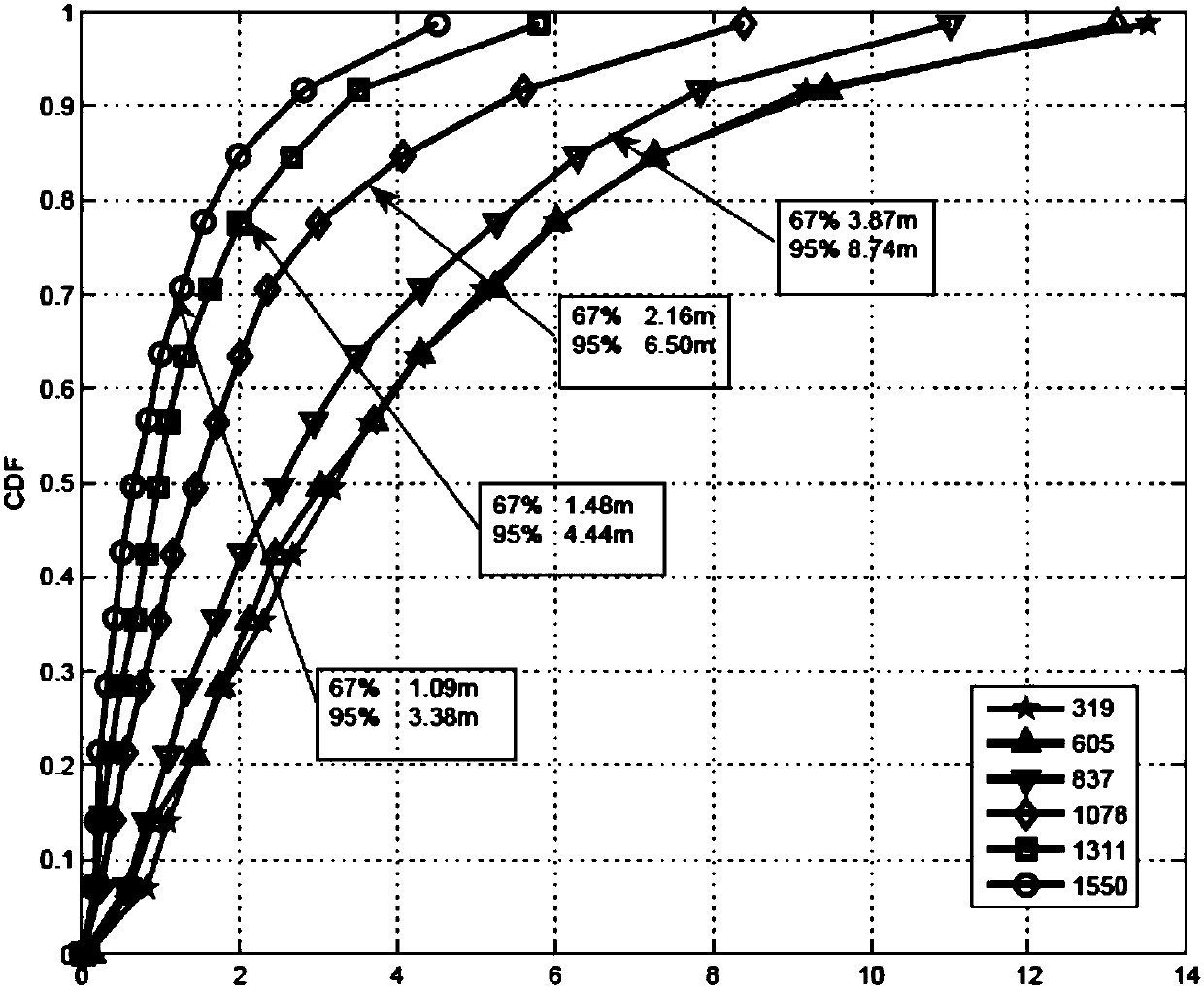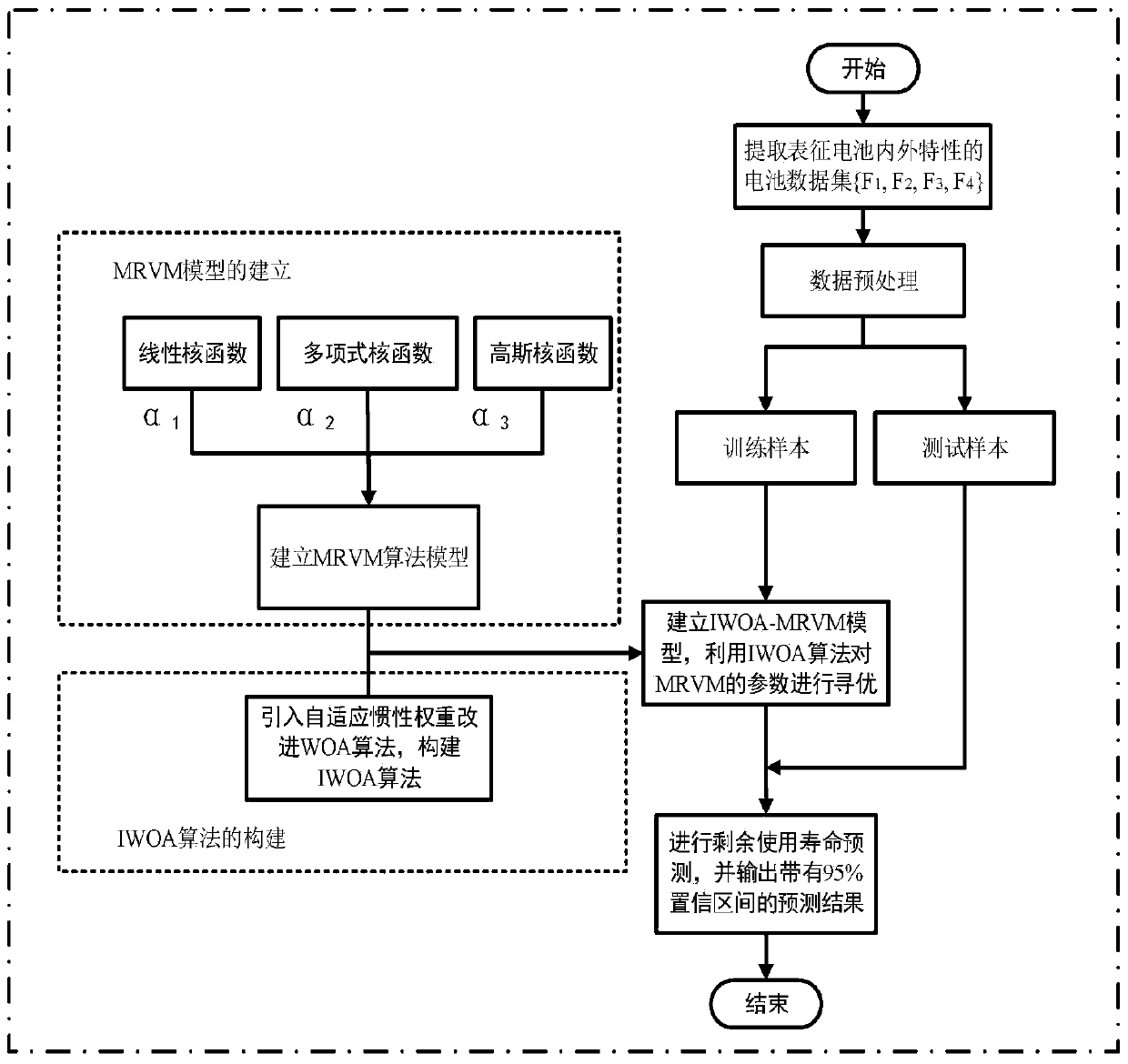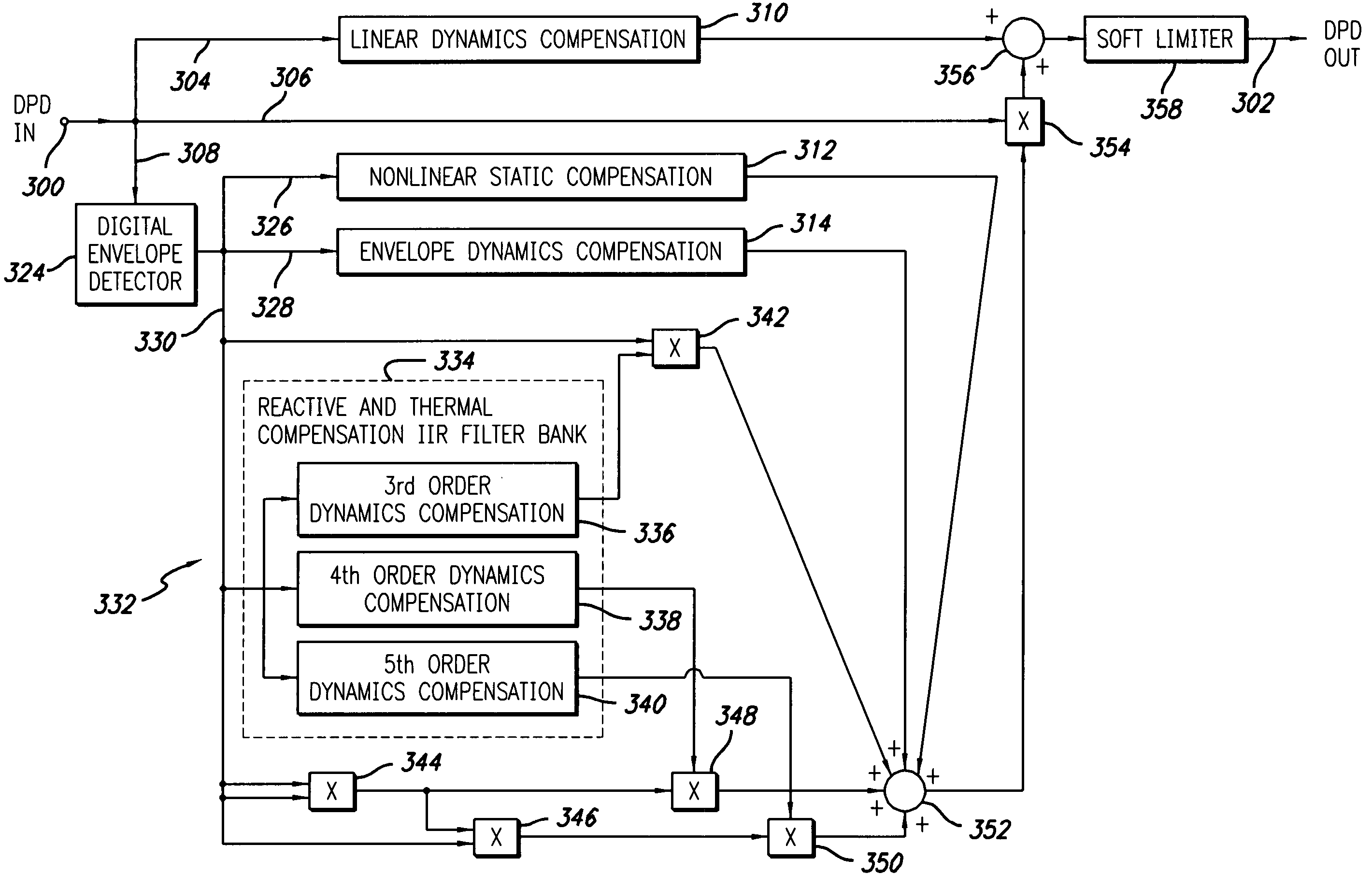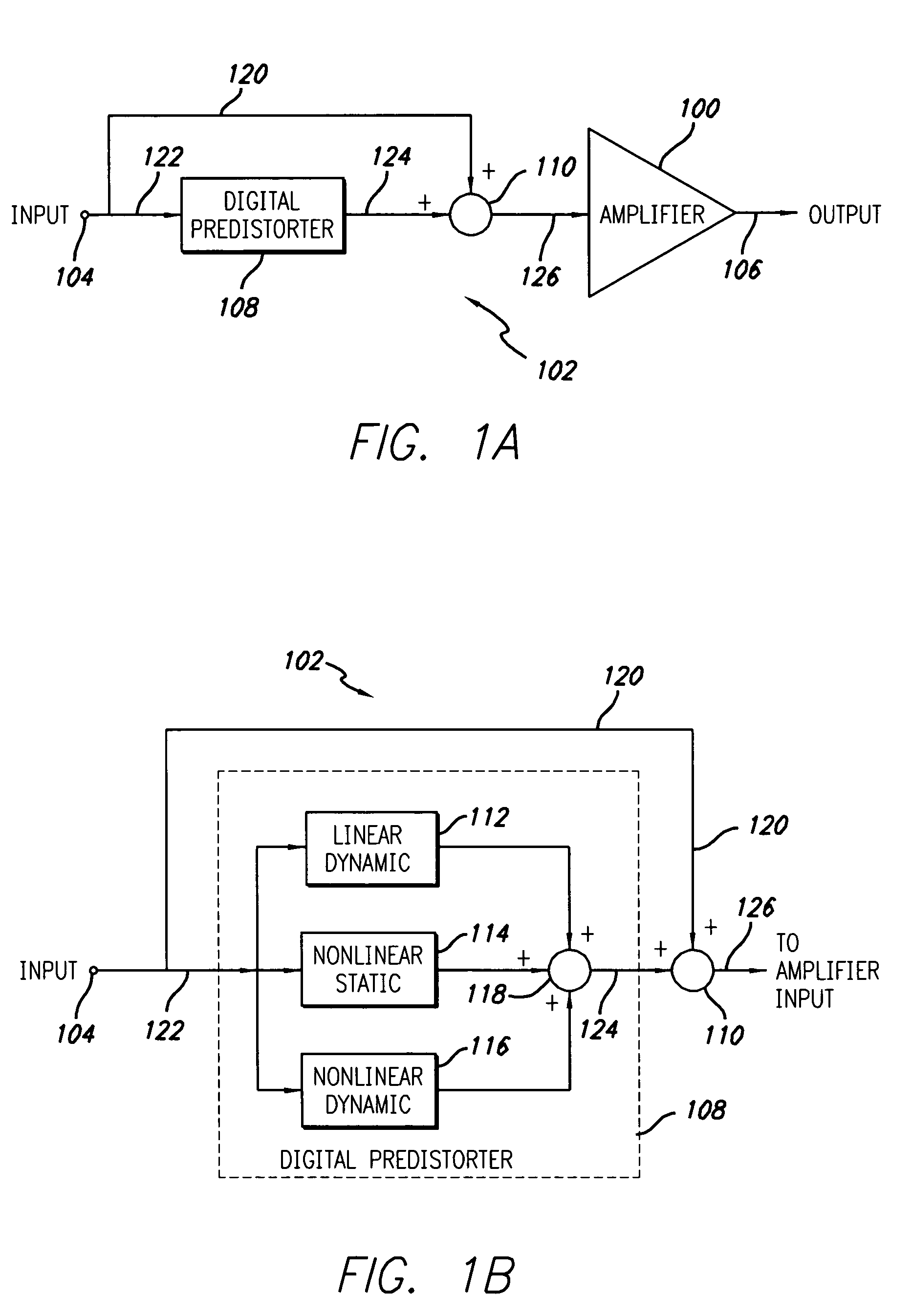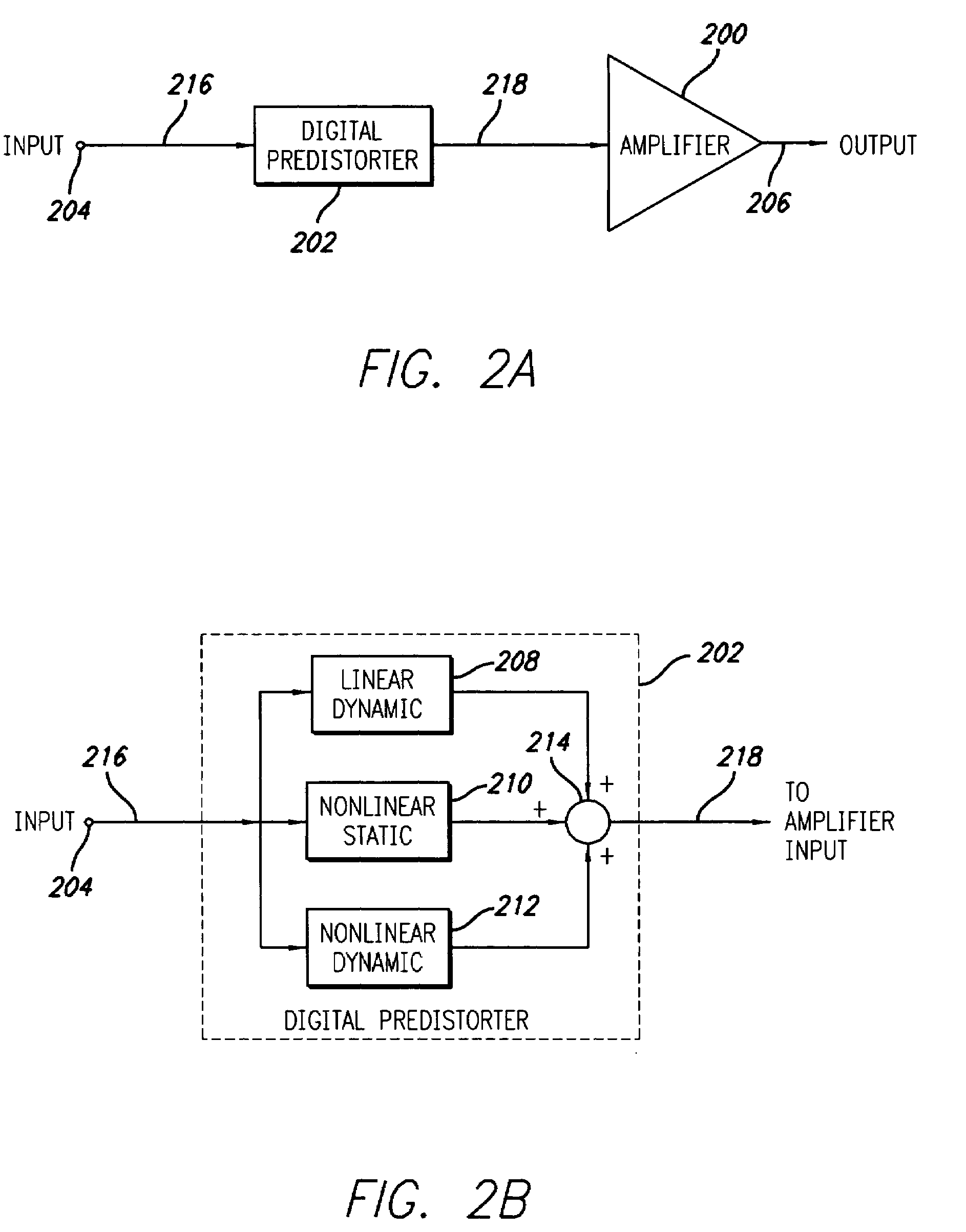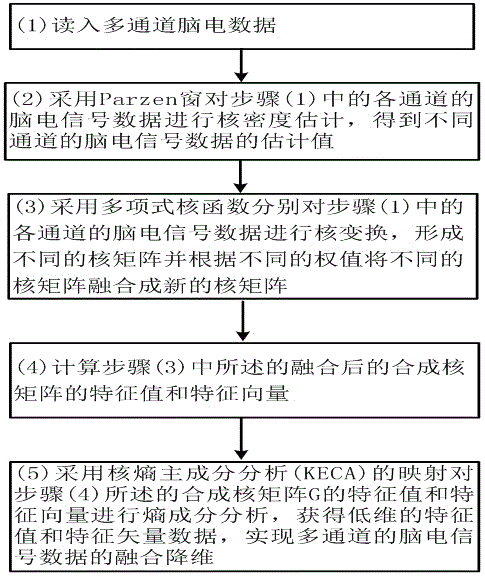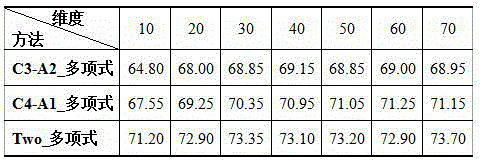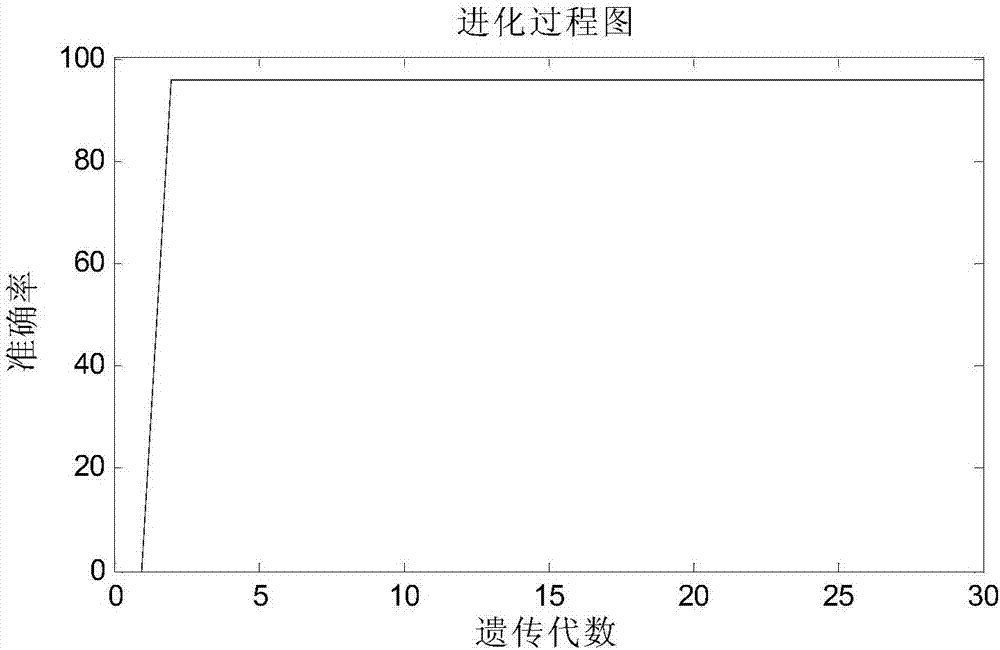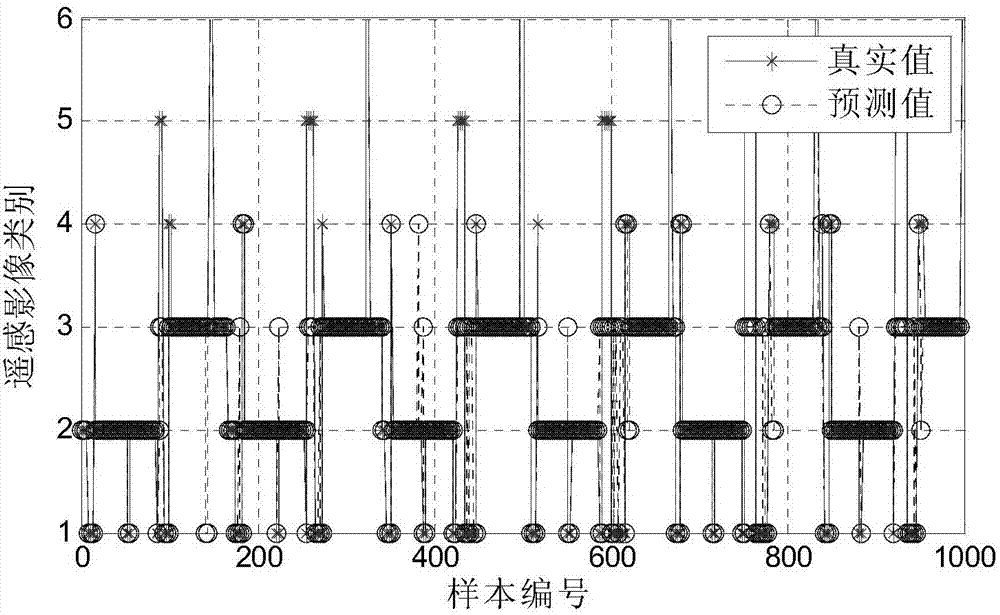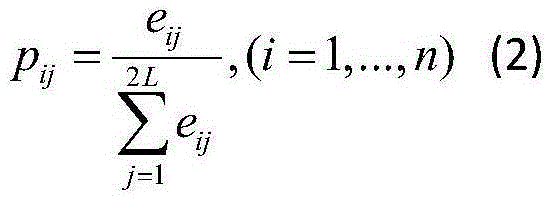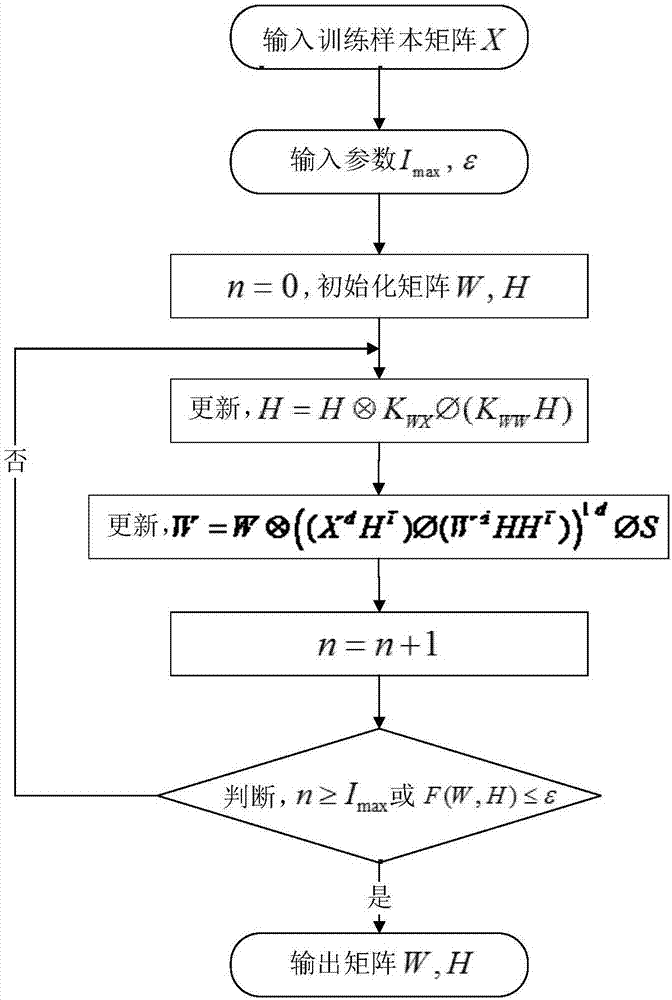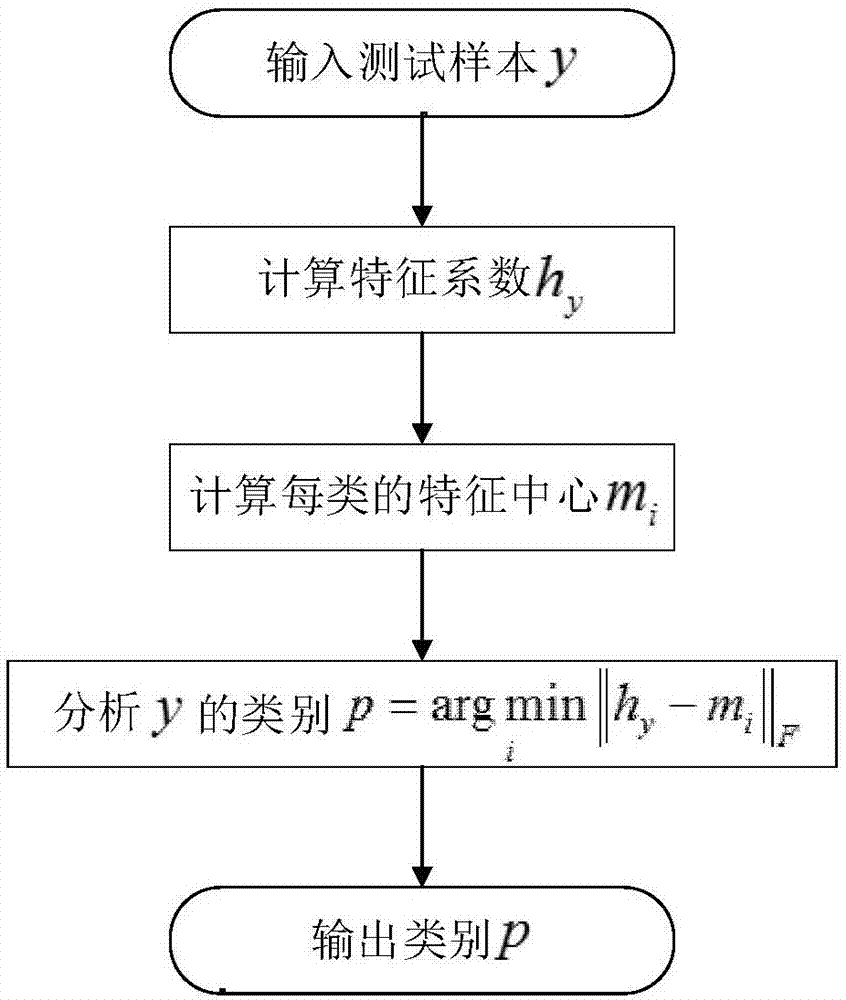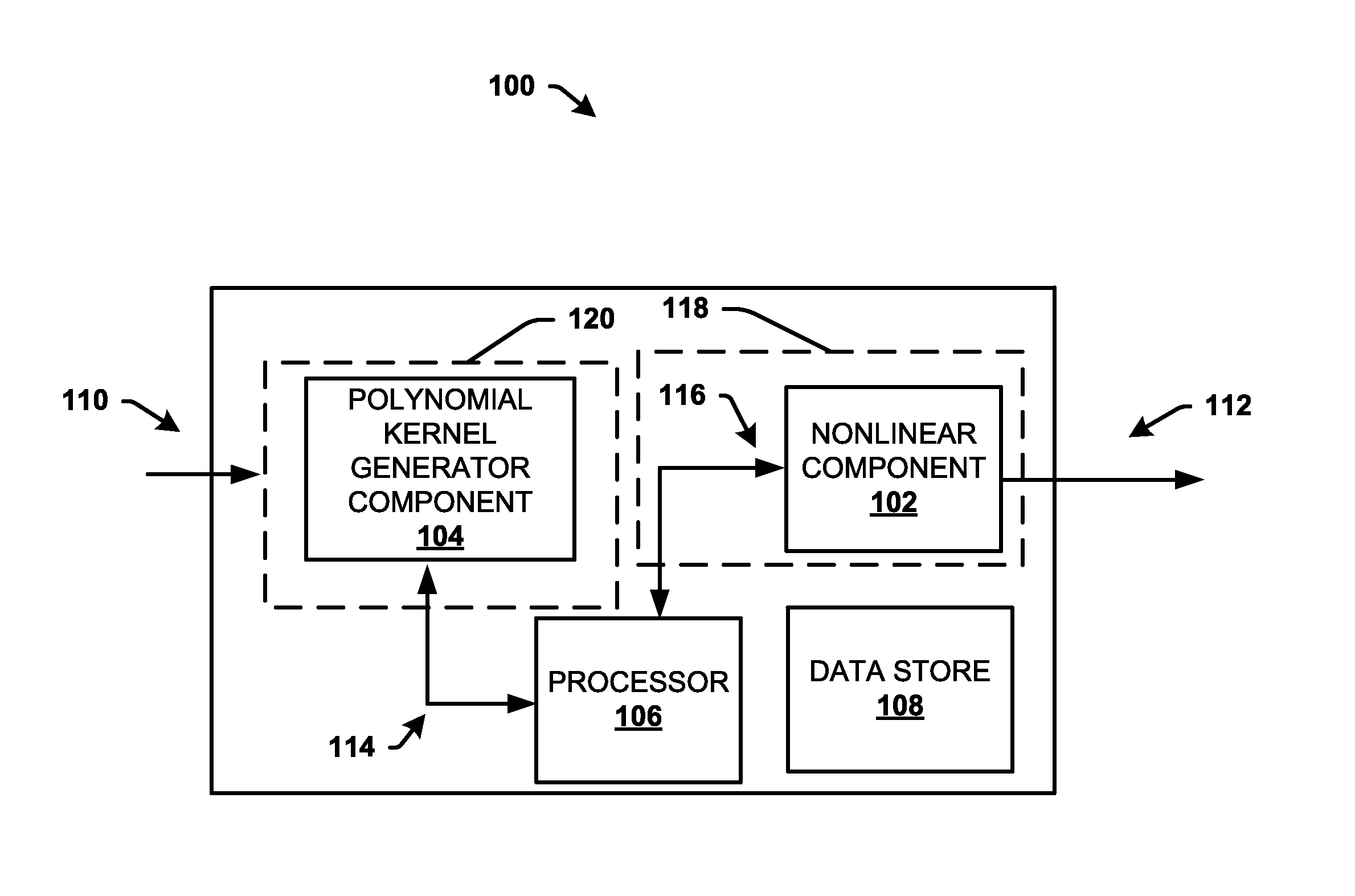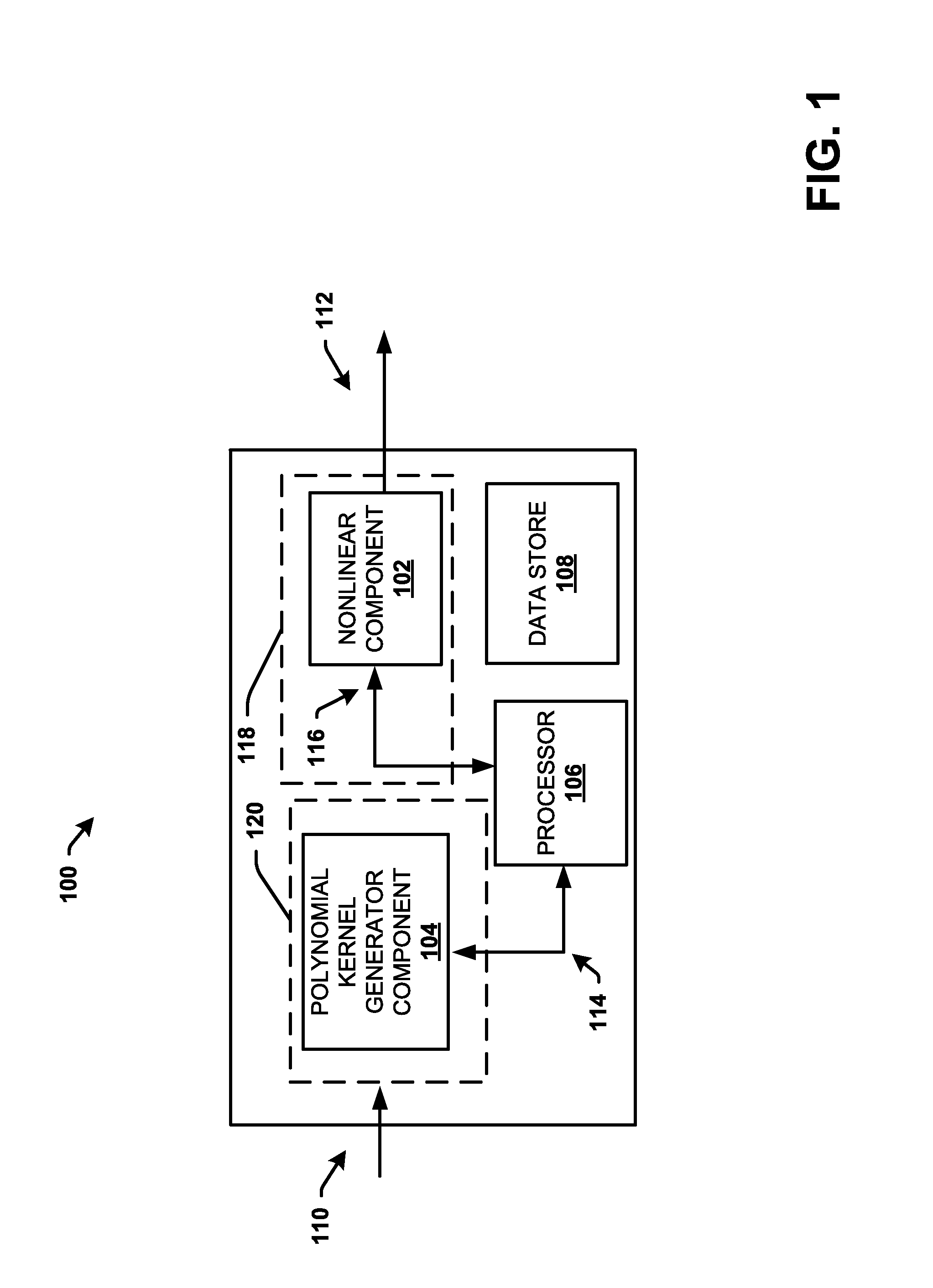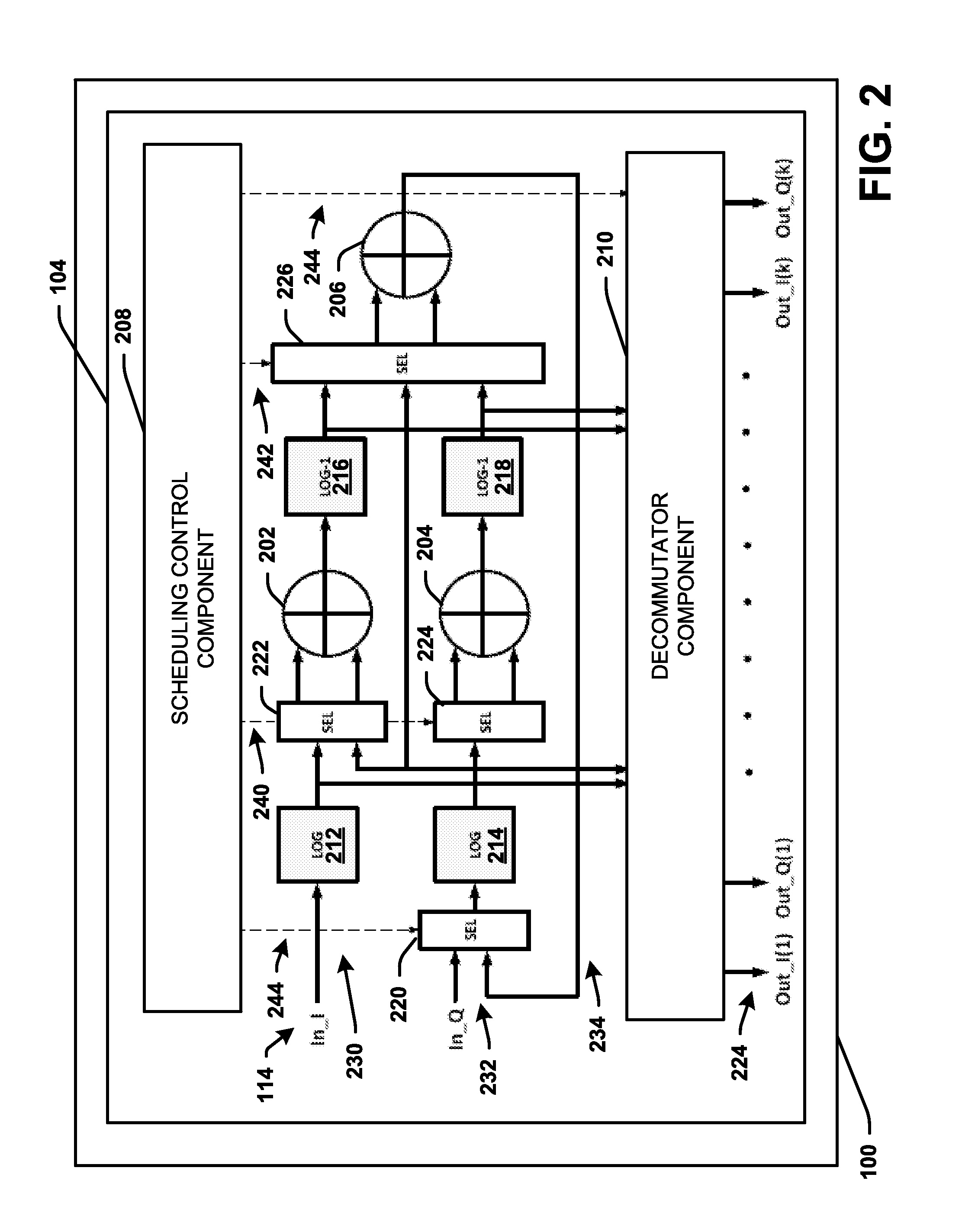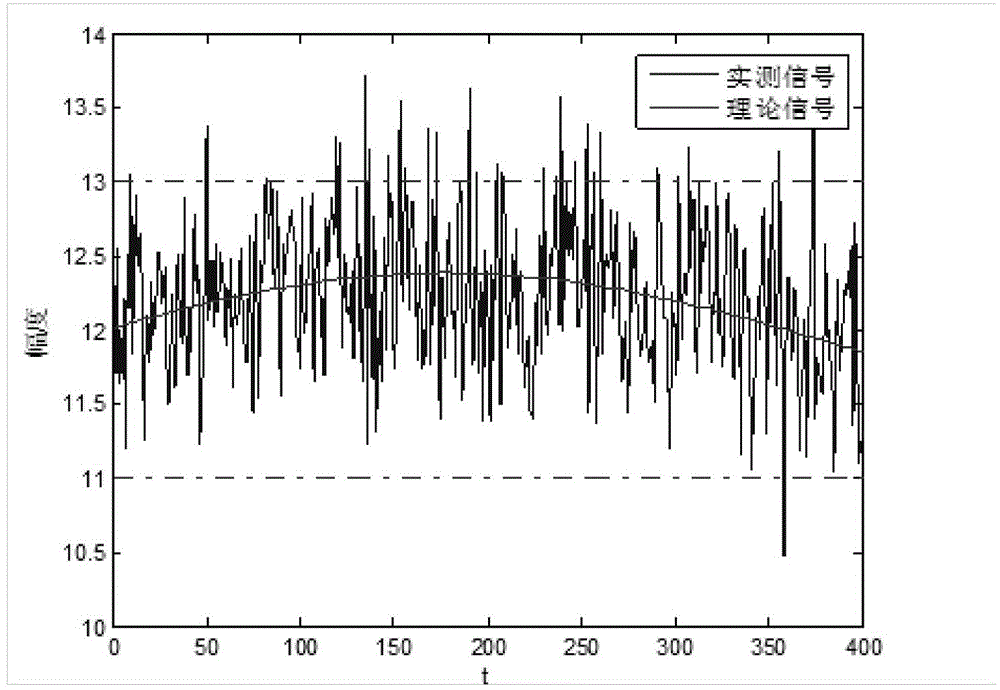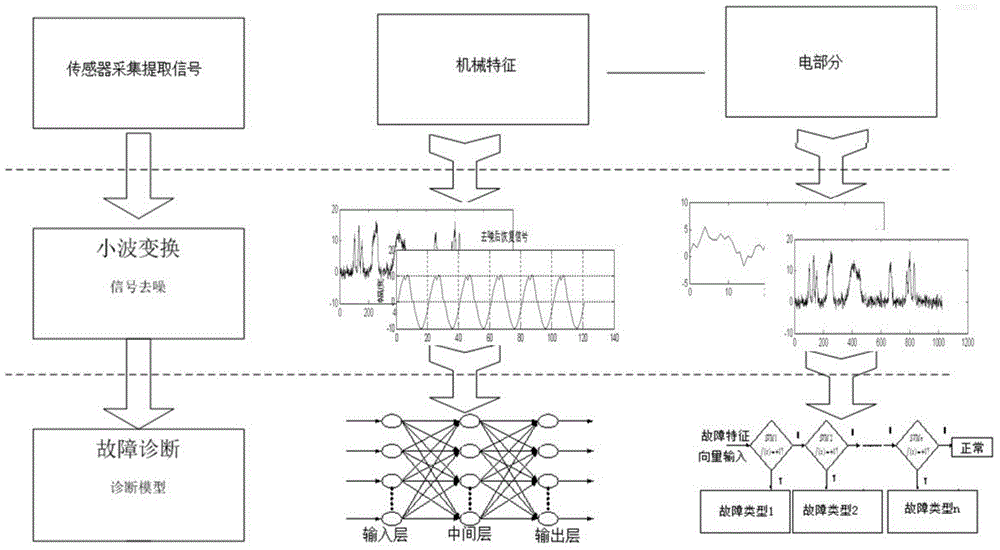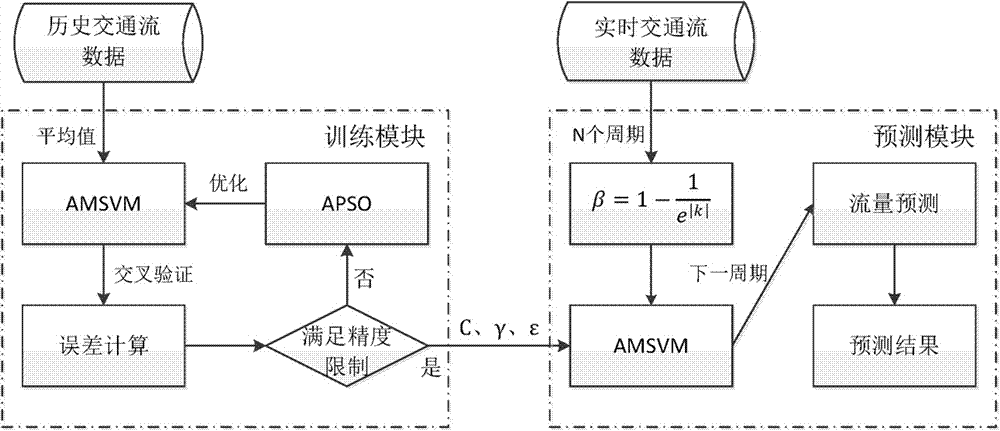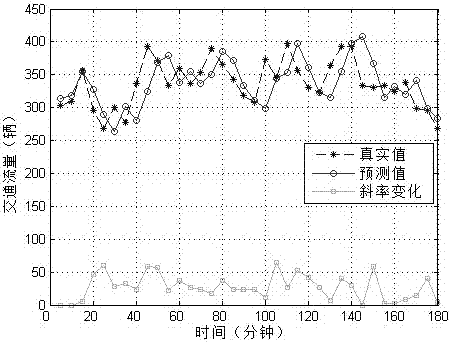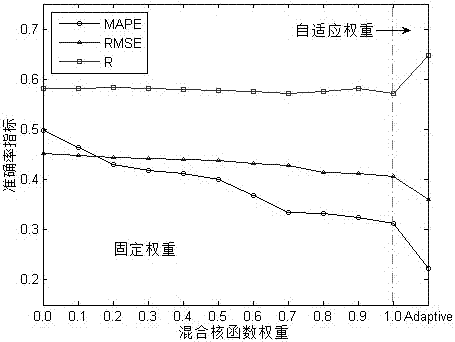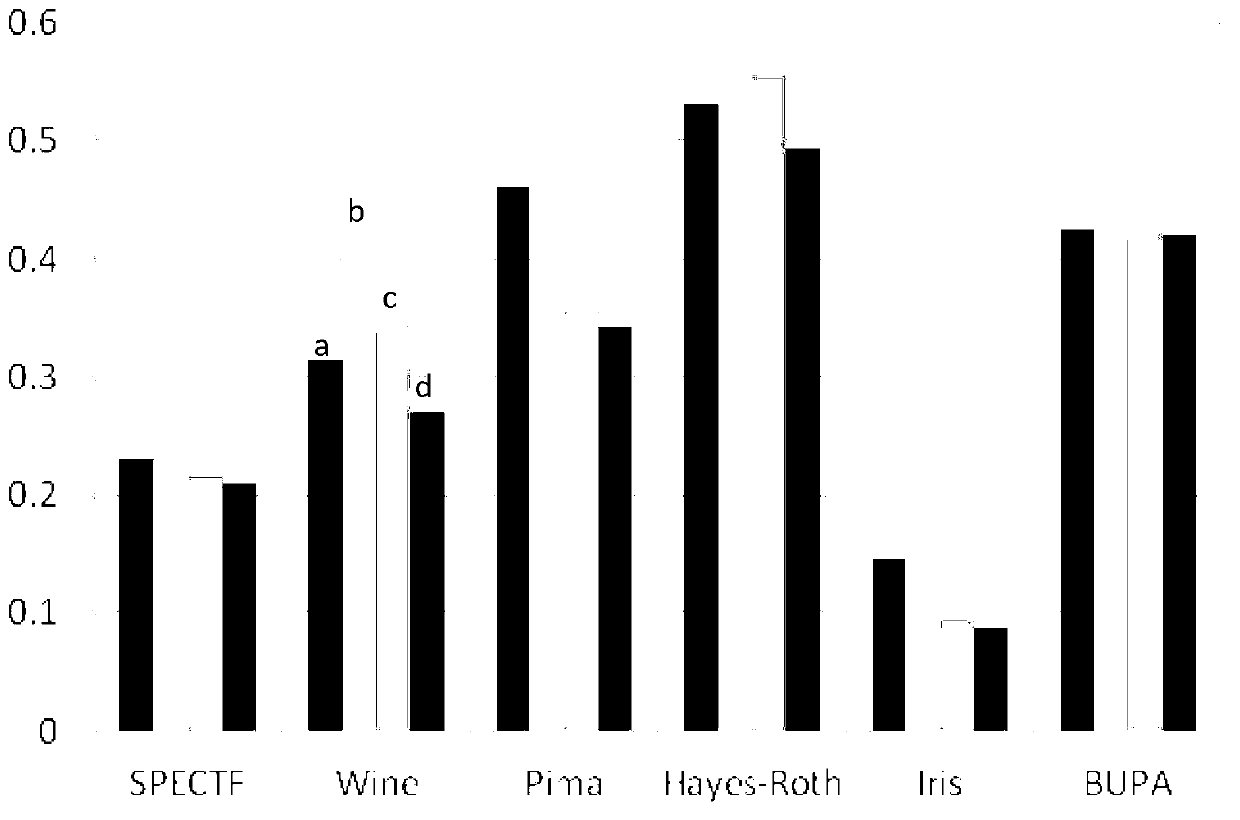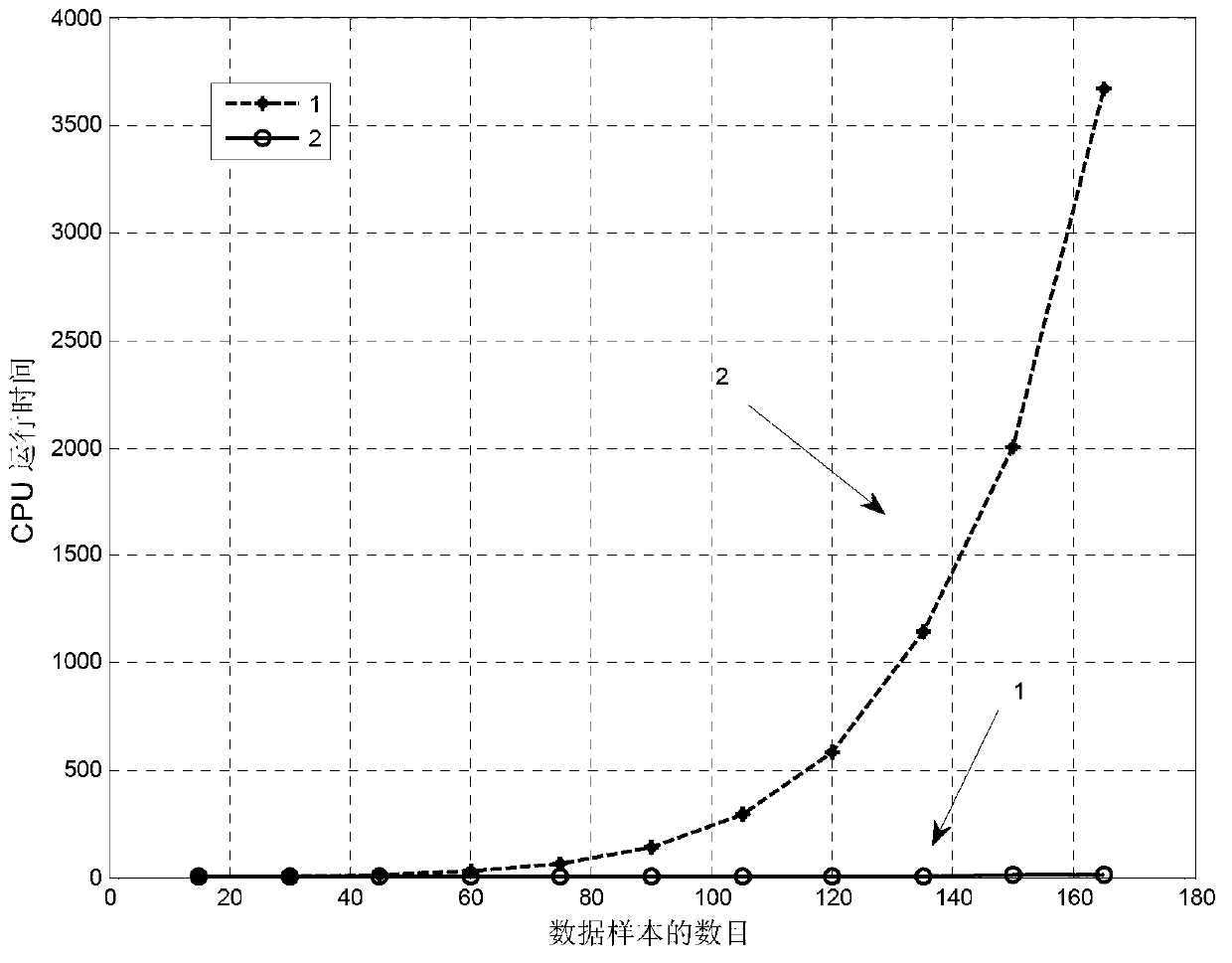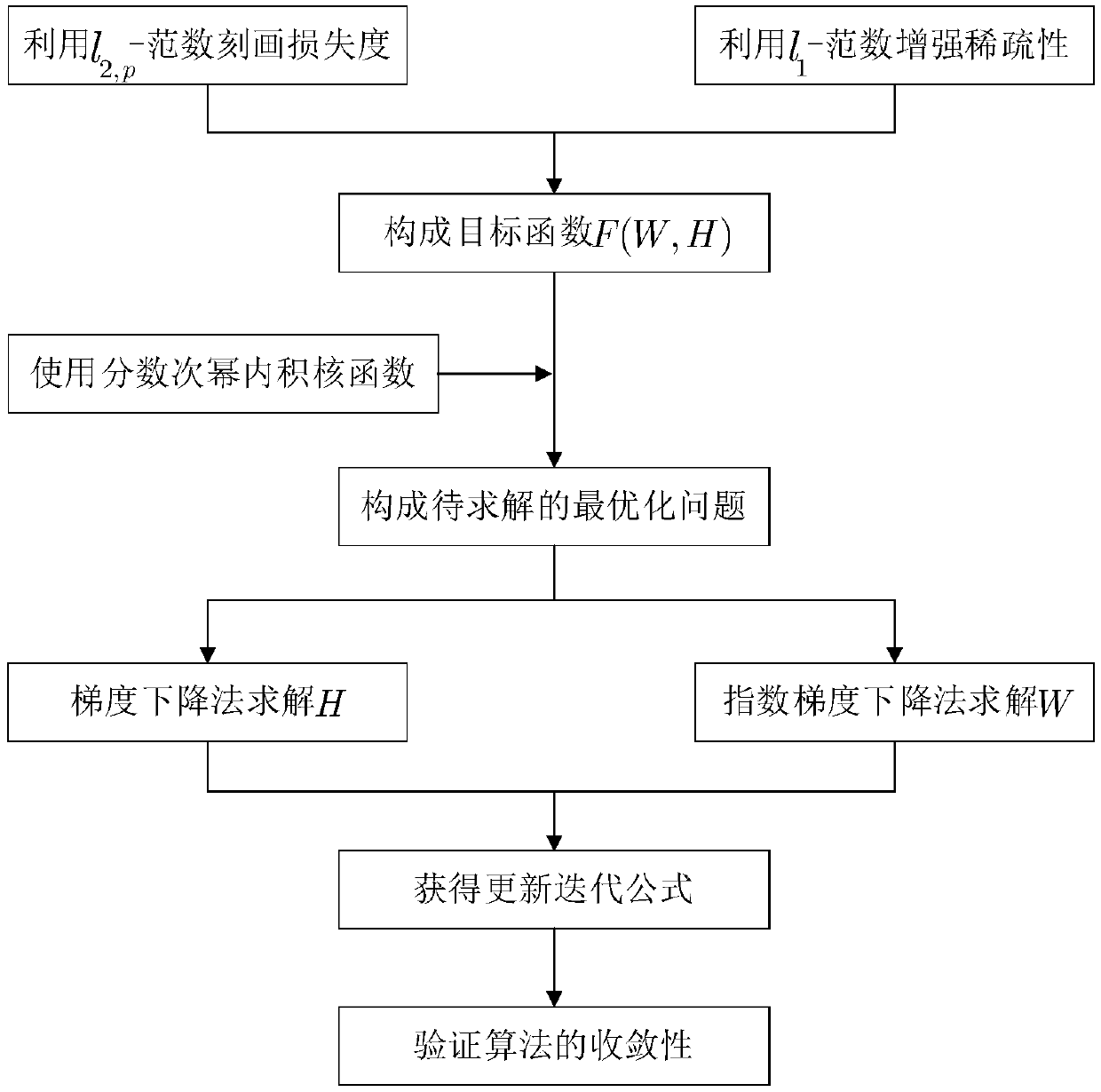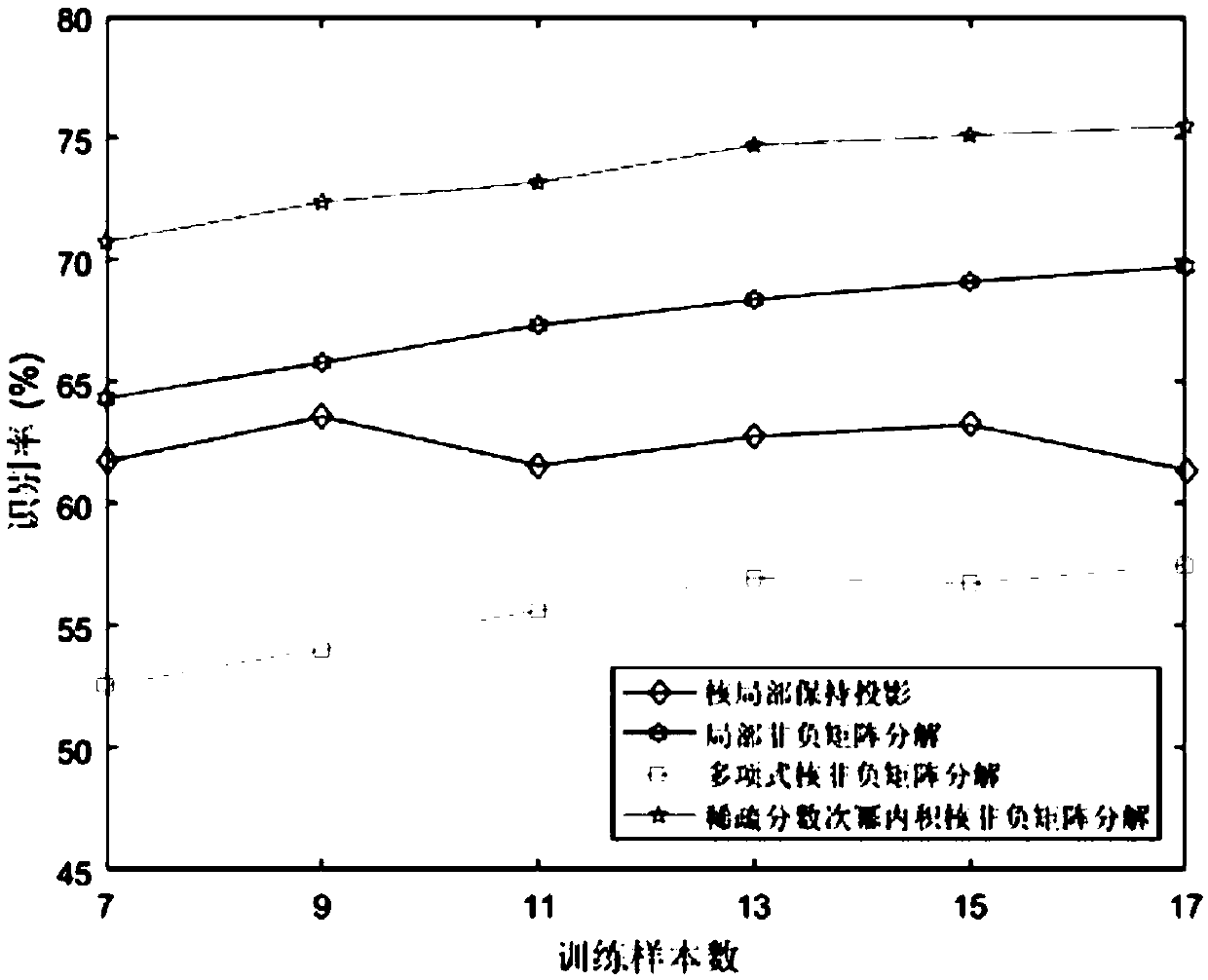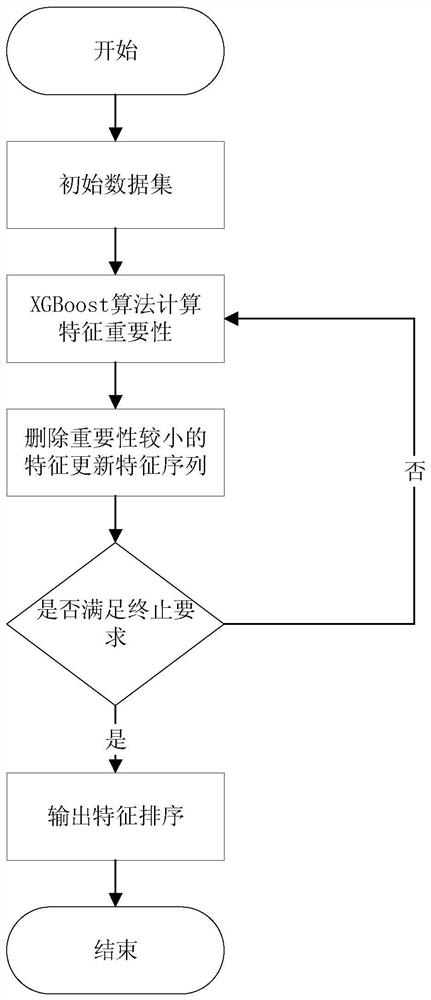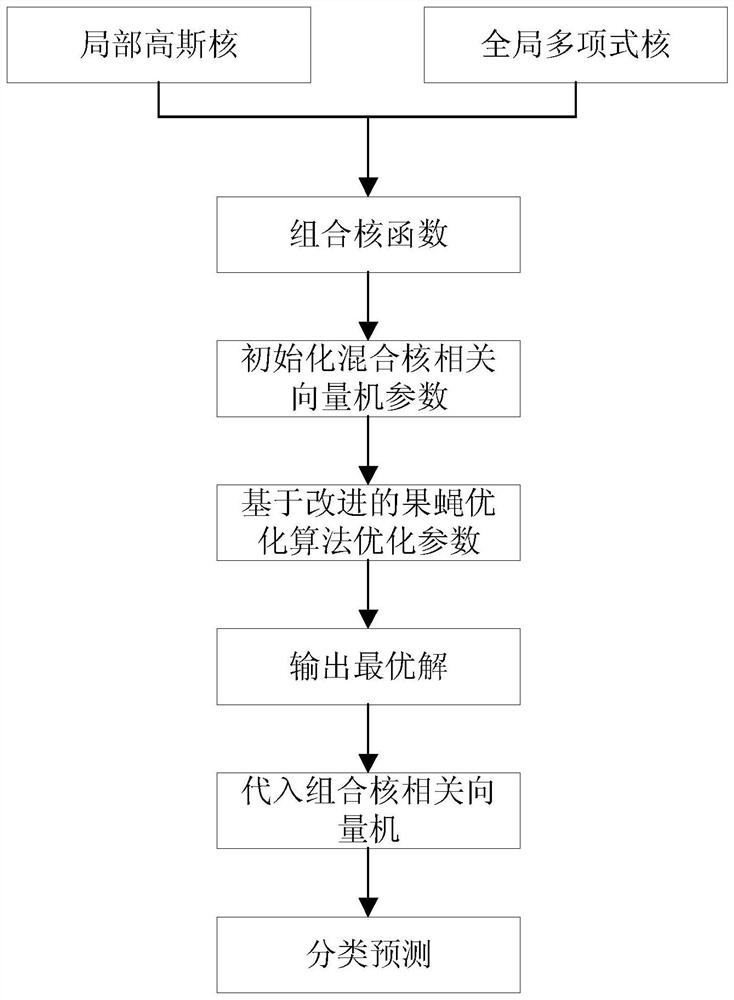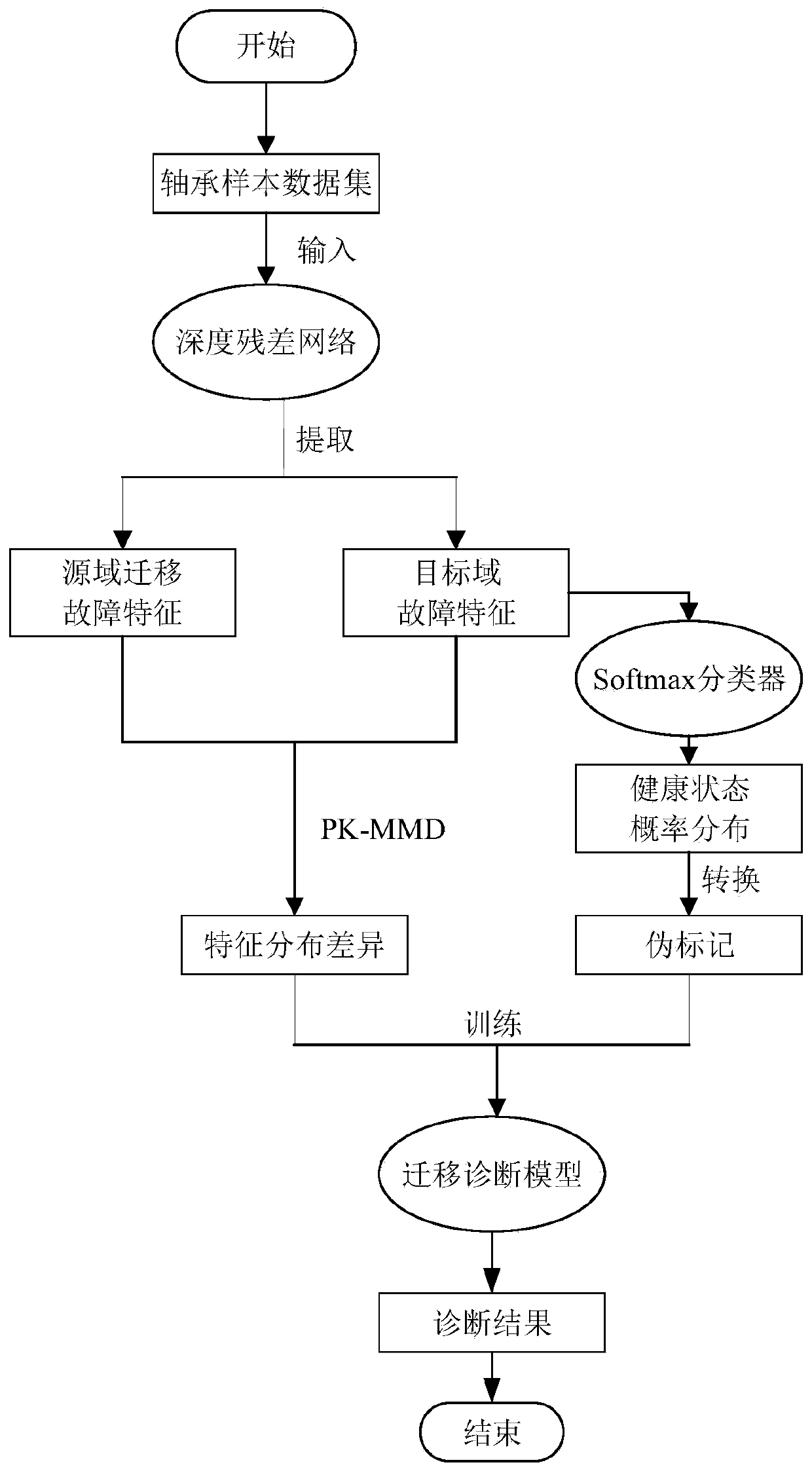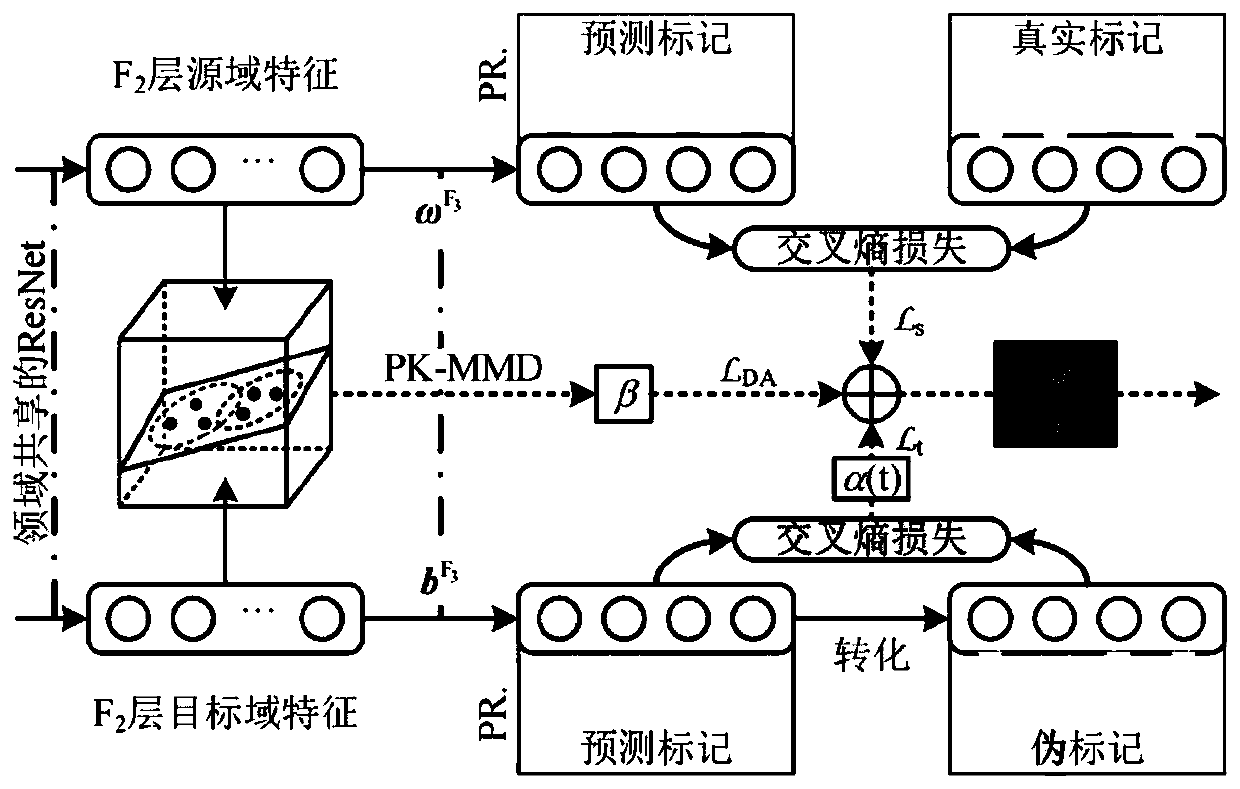Patents
Literature
Hiro is an intelligent assistant for R&D personnel, combined with Patent DNA, to facilitate innovative research.
73 results about "Polynomial kernel" patented technology
Efficacy Topic
Property
Owner
Technical Advancement
Application Domain
Technology Topic
Technology Field Word
Patent Country/Region
Patent Type
Patent Status
Application Year
Inventor
In machine learning, the polynomial kernel is a kernel function commonly used with support vector machines (SVMs) and other kernelized models, that represents the similarity of vectors (training samples) in a feature space over polynomials of the original variables, allowing learning of non-linear models.
Digital predistortion system and method for high efficiency transmitters
ActiveUS20050195919A1Amplifier modifications to reduce non-linear distortionAmplifiers with memory effect compensationNon linear dynamicEngineering
A system for digitally linearizing the nonlinear behaviour of RF high efficiency amplifiers employing baseband predistortion techniques is disclosed. The system provides additive or multiplicative predistortion of the digital quadrature (I / Q) input signal in order to minimize distortion at the output of the amplifier. The predistorter uses a discrete-time polynomial kernel to model the inverse transfer characteristic of the amplifier, providing separate and simultaneous compensation for nonlinear static distortion, linear dynamic distortion and nonlinear dynamic effects including reactive electrical memory effects. Compensation for higher order reactive and thermal memory effects is embedded in the nonlinear dynamic compensation operation of the predistorter in an IIR filter bank. A predistortion controller periodically monitors the output of the amplifier and compares it to the quadrature input signal to compute estimates of the residual output distortion of the amplifier. Output distortion estimates are used to adaptively compute the values of the parameters of the predistorter in response to changes in the amplifier's operating conditions (temperature drifts, changes in modulation input bandwidth, variations in drive level, aging, etc). The predistortion parameter values computed by the predistortion controller are stored in non-volatile memory and used in the polynomial digital predistorter. The digital predistortion system of the invention may provide broadband linearization of highly nonlinear and highly efficient RF amplification circuits including, but not limited to, dynamic load modulation amplifiers.
Owner:TAHOE RES LTD
Wideband enhanced digital injection predistortion system and method
ActiveUS20050157814A1Amplifier modifications to reduce non-linear distortionSecret communicationAudio power amplifierNon linear dynamic
A system for digitally linearizing the nonlinear behaviour of RF high efficiency amplifiers employing baseband predistortion techniques is disclosed. The system provides additive or multiplicative predistortion of the digital quadrature (I / Q) input signal in order to minimize distortion at the output of the amplifier. The predistorter uses a discrete-time polynomial kernel to model the inverse transfer characteristic of the amplifier, providing separate and simultaneous compensation for nonlinear static distortion, linear dynamic distortion and nonlinear dynamic effects including reactive electrical memory effects. Compensation for thermal memory effects also is embedded in the nonlinear dynamic compensation operation of the predistorter and is implemented parametrically using an autoregressive dynamics tracking mechanism. A predistortion controller periodically monitors the output of the amplifier and compares it to the quadrature input signal to compute estimates of the residual output distortion of the amplifier. Output distortion estimates are used to adaptively compute the values of the parameters of the predistorter in response to changes in the amplifier's operating conditions (temperature drifts, changes in modulation input bandwidth, variations in drive level, aging, etc). The predistortion parameter values computed by the predistortion controller are stored in non-volatile memory and used in the polynomial digital predistorter. The digital predistortion system of the invention may provide broadband linearization of highly nonlinear and highly efficient RF amplification circuits including, but not limited to, dynamic load modulation amplifiers.
Owner:INTEL CORP
Short-term load prediction method based on particle swarm optimization least squares support vector machine
InactiveCN106952183AImprove search abilityImprove search efficiencyForecastingCharacter and pattern recognitionLeast squares support vector machineShort terms
The present invention relates to a short-term load prediction method based on a particle swarm optimization least squares support vector machine. Aiming at the deficiency of a single kernel function least squares support vector machine model, the Gaussian kernel function and the Polynomial kernel function are combined to obtain a new hybrid kernel function so as to improve the learning ability and the generalization ability of the least squares support vector machine model; the particle swarm optimization algorithm based on double populations is employed to optimize parameters of the least squares support vector machine of the hybrid kernel function, the particle swarm optimization algorithm based on double populations has advantages of good global search and local search performances, and a strategy having dynamic accelerated factors is employed so as to greatly increase the variety of particles and prevent the search from being caught in a local extremum. The short-term load prediction method based on the particle swarm optimization least squares support vector machine maximally utilizes information in computation, and in the process of selecting the optimal parameter value, the average mean square error of load data and actual data is employed as the adaptation value of the particle swarm optimization algorithm so as to improve the short-item load prediction accuracy value.
Owner:WUHAN UNIV
Electroencephalographic and electromyographic information automatic intention recognition and upper limb intelligent control method and system
ActiveCN109394476AMotion track real-time adjustmentImprove recognition accuracyDiagnosticsGymnastic exercisingIntent recognitionRisk stroke
The invention relates to an electroencephalographic and electromyographic information automatic intention recognition and upper limb intelligent control method and system, which are used for rehabilitation treatment of the upper limb of a stroke patient, an electroencephalographic and surface electromyographic signal collector collects and processes the electroencephalographic and surface electromyographic signals of the patient in real time, a mixed kernel function formed by weighting a polynomial kernel function and an RBF kernel function weights is used to perform fitting and prediction, soas to more accurately identify and monitor the motion intention of the patient, and judge the corresponding degree of rehabilitation, according to which a corresponding rehabilitation training strategy is adopted. When the rehabilitation degree of the upper limb of the stroke patient is low, passive training control is adopted. When the rehabilitation degree of the upper limb of the stroke patient is high, active, assisted and resistive control modes are adopted. The hybrid kernel function support vector machine model provided by the invention has better learning ability and generalization performance, high prediction accuracy and good control performance, and the prediction result meets the index requirements of a rehabilitation robot for stroke patients.
Owner:上海神添实业有限公司 +1
System and method for predicting fluid flow in subterranean reservoirs
ActiveUS20100198570A1Maximize accuracyGeomodellingCAD circuit designGaussian random fieldPrediction system
A reservoir prediction system and method are provided that use generalized EnKF using kernels, capable of representing non-Gaussian random fields characterized by multi-point geostatistics. The main drawback of the standard EnKF is that the Kalman update essentially results in a linear combination of the forecasted ensemble, and the EnKF only uses the covariance and cross-covariance between the random fields (to be updated) and observations, thereby only preserving two-point statistics. Kernel methods allow the creation of nonlinear generalizations of linear algorithms that can be exclusively written in terms of dot products. By deriving the EnKF in a high-dimensional feature space implicitly defined using kernels, both the Kalman gain and update equations are nonlinearized, thus providing a completely general nonlinear set of EnKF equations, the nonlinearity being controlled by the kernel. By choosing high order polynomial kernels, multi-point statistics and therefore geological realism of the updated random fields can be preserved. The method is applied to two non-limiting examples where permeability is updated using production data as observations, and is shown to better reproduce complex geology compared to the standard EnKF, while providing reasonable match to the production data.
Owner:CHEVROU USA INC
Multi-kernel support vector machine multi-instance learning algorithm applied to pedestrian re-identification
ActiveCN103839084AImprove recognition rateCharacter and pattern recognitionRe identificationPedestrian
The invention discloses a multi-kernel support vector machine multi-instance learning algorithm applied to pedestrian re-identification. The algorithm includes two main steps, namely multi-feature description and a multi-kernel SVM model multi-instance learning algorithm. According to the algorithm, HSV color features and SIFT local features of two pictures, taken under a camera A and a camera B, of the same pedestrian are extracted to construct a word bag, and difference vectors of the two kinds of the features represent the conversion relation under the two cameras to serve as two instance samples and are encapsulated as a bag; then a multi-kernel support vector machine model is optimized, the bag is trained by means of linear fusion of the Gaussian kernel and a polynomial kernel, optimal parameters are obtained through multi-instance learning, and a high identification rate is achieved.
Owner:HUZHOU TEACHERS COLLEGE
Wireless sensor network target positioning and tracking method
InactiveCN101393260AReduce the impact of estimatesLive UpdateNetwork topologiesPosition fixationWireless sensor networkingSensor node
The invention discloses a target positioning and tracking method for a wireless sensor network. The method comprises the following steps: at any positioning time, estimating a position of a target according to measurement information of a sensor node, building a learning region covering the estimated position of the target, selecting an arbitrary quantity of position points in the learning region, obtaining a decision function by use of a polynomial kernel function and a mapping relationship of the distance vector from an approaching position point of an epsilon-support vector machine for regression to the sensor node and a coordinate of the position point; and obtaining an estimated value of the position of the target by inputting a distance vector from the sensor node to the target into the decision function and transmitting an estimated value of the position of the target to a base station which then fits the historical data of the position of the target and upgrades the motion patch of the target to complete target tracking. The method obviously reduces the influence of measurement errors of the sensor node on the target positioning and tracking and improves the accuracy of target tracking.
Owner:SOUTH CHINA UNIV OF TECH
Signal instantaneous frequency estimation method based on nonlinear frequency modulation wavelet transformation
InactiveCN103020479AAccurate estimateAccurate instantaneous frequencySpecial data processing applicationsEstimation methodsTime–frequency analysis
The invention discloses a method for estimating the instantaneous frequency of a non-stationary signal and is applied to the field of signal processing. The method utilizes the nonlinear frequency modulation wavelet transformation technology, takes into consideration of influences of polynomial kernel characteristic parameters on time-frequency analysis performance during nonlinear frequency modulation wavelet transformation, and selects proper kernel characteristic parameters so as to realize precise estimation on instantaneous frequency of a non-stationary signal. The method has the advantages as follows: 1, due to adoption of the nonlinear frequency modulation wavelet transformation technology, the purpose of precise estimation on the instantaneous frequency of the non-stationary signal can be achieved, and the adopted key technology is selection of nonlinear polynomial kernel characteristic parameters of nonlinear frequency modulation wavelet transformation; 2, by using the instantaneous frequency estimation technology based on nonlinear frequency modulation wavelet transformation, the defect of complicated and overloaded computation of a conventional technology can be avoided, and the method has the advantages of simplicity and high precision; and 3, the method is simple and feasible in computation, and can be applied to the technical field of signal processing and the like.
Owner:SHANGHAI JIAO TONG UNIV
Wideband enhanced digital injection predistortion system and method
ActiveUS7366252B2Amplifier modifications to reduce non-linear distortionSecret communicationAudio power amplifierNon linear dynamic
A system for linearizing RF amplifiers employing baseband predistortion techniques provides additive or multiplicative predistortion of the quadrature (I / Q) input signal. The predistorter uses a discrete-time polynomial kernel to model the inverse transfer characteristic of the amplifier, providing separate and simultaneous compensation for nonlinear static distortion, linear dynamic distortion and nonlinear dynamic effects including reactive electrical memory effects. A predistortion controller monitors and compares the amplifier output with the quadrature input signal to compute estimates of the residual output distortion of the amplifier. Output distortion estimates are used to adaptively compute the predistorter parameter values in response to changes in the amplifier's operating conditions. The computed values are used in the predistorter. The predistortion system of the invention may provide broadband linearization of RF amplification circuits including, but not limited to, dynamic load modulation amplifiers.
Owner:INTEL CORP
Lightweight fine-grained image recognition method for cross-layer feature interaction in weak supervision scene
ActiveCN111652236AImprove fitting abilityImprove generalization abilityCharacter and pattern recognitionNeural architecturesInteraction netsComputation complexity
The invention discloses a lightweight fine-grained image recognition method for cross-layer feature interaction in a weak supervision scene, and the method comprises the steps: constructing a novel residual module through employing multi-layer aggregation grouping convolution to replace conventional convolution, and enabling the novel residual module to be directly embedded into a deep residual network frame, thereby achieving the lightweight of a basic network; then, performing modeling on the interaction between the features by calculating efficient low-rank approximate polynomial kernel pooling, compressing the feature description vector dimension, reducing the storage occupation and calculation cost of a classification full-connection layer, meanwhile, the pooling scheme enables the linear classifier to have the discrimination capability equivalent to that of a high-order polynomial kernel classifier, and the recognition precision is remarkably improved; and finally, using a cross-layer feature interaction network framework to combine the feature diversity, the feature learning and expression ability is enhanced, and the overfitting risk is reduced. The comprehensive performance of the lightweight fine-grained image recognition method based on cross-layer feature interaction in the weak supervision scene in the three aspects of recognition accuracy, calculation complexity and technical feasibility is at the current leading level.
Owner:SOUTHEAST UNIV
Mix kernel machine learning based fan batch power prediction method
ActiveCN106779226APower dispatch guaranteeImprove adaptabilityForecastingCharacter and pattern recognitionLearning basedData set
The invention provides a mix nuclear machine learning based fan batch power prediction method. The method includes: establishing a wind-field fan offline historical database; dividing historical data of fans of a wind field of the wind-field fan offline historical database into 12 historical data sets; performing batch division processing on the fans in the wind field; taking the fans closest to the intra-batch wind power average value of each batch as batch sampled fans; establishing wind power prediction models of the batch sampled fans in the wind field; multiplying wind power predication values of the batch sampled fans by the number of the intra-batch fans and summarizing the wind power predication values of the batch sampled fans with the number of the intra-batch fans according to wind power prediction of the batch sampled fans through future weather information of the wind field to acquire the total wind power prediction value of the wind field. Weather data and wind power data are collected, wind power of the different batch sampled fans of the wind field is predicated, Gaussian kernel function and polynomial kernel function are combined to serve as kernel function, better applicability is achieved, the purpose of prediction of the wind power of the entire wind field is realized, and power dispatching of the wind field is guaranteed.
Owner:NORTHEASTERN UNIV
Wind power plant ultrashort term wind speed prediction method based on combination kernel function
The invention discloses a wind power plant ultrashort term wind speed prediction method based a combination kernel function. The method comprises the following steps: adopting a support vector machine based on the combination kernel function, combining a wavelet kernel function and a polynomial kernel function, combining a global characteristic of the polynomial kernel function with high precision and good learning capacity of the wavelet kernel function, effectively improving predictive capacity of a support vector machine model, and reducing predicting errors. Meanwhile, in building of the support vector machine model, choosing similar data, building models in a classified mode, enabling a training sample and a test sample to have a similar relation, and therefore strengthening nonlinear fitting capacity of a support vector regression model. According to combination of the combination kernel function and the similar data, the wind power plant ultrashort term wind speed prediction method based the combination kernel function improves precision of wind speed prediction.
Owner:UNIV OF ELECTRONICS SCI & TECH OF CHINA
Colorectal cancer prediction method and device based on marker gene and hybrid kernel function SVM
InactiveCN108615555AImprove featuresFast convergenceMedical data miningMedical automated diagnosisDiseaseAlgorithm
The invention discloses a support vector machine classifier construction method and a support vector machine classifier construction device for colorectal cancer prediction. The method comprises the steps of: acquiring health and colorectal cancer sample data and preprocessing the data; determining disease-related feature genes based on the two sets of sample data; utilizing a Gaussian kernel function, a polynomial kernel function and a linear kernel function to construct a hybrid kernel function support vector machine; and optimizing parameters of the hybrid kernel function support vector machine. The support vector machine constructed by adopting the method and the device is more suitable for performing classification based on marker genes and can save time for colorectal cancer judgment.
Owner:SHANDONG NORMAL UNIV
Surrounding rock category acquisition method based on slag piece image recognition
ActiveCN108182440AImprove accuracyImprove speedCharacter and pattern recognitionPattern recognitionFeature set
The invention discloses a surrounding rock category acquisition method based on slag piece image recognition. The method comprises the following steps that S1, a slag piece image is acquired; S2, theprocessed slag piece image is obtained; S3, the surrounding rock grade associated sensitive feature set of the processed slag piece image is calculated; S4, the data sample is divided into k clustersby using an AP clustering method; S5, weight fusion of a Gaussian kernel function and a polynomial kernel function is performed, and LSSVM regression is performed on each cluster of the step S4 so asto obtain k submodules; and S6, weight fusion of the obtained k submodules is performed so as to obtain the surrounding rock category value. The real-time image is acquired and processed without manual participation so that excessive dependence on human experience can be avoided and the surrounding rock grading accuracy and rapidity can be enhanced.
Owner:CHINA RAILWAY ENGINEERING EQUIPMENT GROUP CO LTD
SVDD radar target one-dimensional distance image identification method based on density weight and hybrid kernel function
ActiveCN107576949AImprove generalization abilityGood for global featuresWave based measurement systemsDensity distributionRadar
The invention discloses an SVDD radar target one-dimensional distance image identification method based on density weight and a hybrid kernel function and belongs to the radar target identification field. The K-type kernel function has strong generalization capability, extraction of global characteristics of training data is facilitated, complex index operation of a radial basic kernel function isavoided, and properties of small calculation complexity of a polynomial kernel function and high approximation precision of the radial basic kernel function are realized. The radial basic kernel function has quite good local characteristics, the K-type kernel function and the radial basic kernel function are combined to replace a kernel function of a traditional SVDD algorithm, moreover, a localdensity algorithm based on interception distance is employed to calculate local density between a support vector and training sample data in the high-dimensional kernel characteristic space, accordingto density distribution, the shape of a super-closed ball is adjusted, and identification performance of radar one-dimensional distance image single type targets is effectively improved.
Owner:UNIV OF ELECTRONICS SCI & TECH OF CHINA
Machine learning-based hybrid kernel function indoor positioning method
ActiveCN107703480AHigh positioning accuracyBest weight factorPosition fixationMachine learningData setAlgorithm
A machine learning-based hybrid kernel function indoor positioning method disclosed by the present invention comprises the steps of firstly establishing a fingerprint map library, and taking the fingerprint map library as a training data set; then utilizing a weighted summation method to construct a hybrid kernel function, and using a support vector regression algorithm and a v-folding cross validation method in the machine learning algorithms to train to obtain an optimal weight coefficient and an optimal kernel parameter of the hybrid kernel function; and finally under the premises of the optimal weight coefficient and the optimal kernel parameter, carrying out the offline training learning on the training data set to obtain the fitting functions of an x coordinate and a y coordinate separately, and then utilizing the fitting functions to carry out the online learning on an RSSI value received by a target, thereby obtaining the position coordinate of the target. Compared with the conventional indoor positioning algorithms of a BP neural network algorithm, a k-nearest neighbor algorithm, a linear kernel function algorithm, a polynomial kernel function algorithm and a Gaussian kernel function algorithm, the positioning precision of the algorithm of the present invention is higher.
Owner:广州世炬网络科技有限公司
Internal and external characteristic considered remaining service life prediction method for lithium ion battery
ActiveCN110568374AImprove applicabilityElectrical testingCharacter and pattern recognitionConfidence intervalCharge discharge
The invention relates to an internal and external characteristic considered remaining service life prediction method for a lithium ion battery. The method is characterized by comprising the steps: a mixed kernel correlation vector machine MRVM method based on a linear kernel function, a polynomial kernel function and a Gaussian kernel function is built, and the problem that a single-kernel RVM islow in prediction capability is solved; a whale optimization algorithm IWOA with a self-adaptive inertia weight is used for providing more suitable parameters for the MRVM method; and the IWAO algorithm can expand the particle search range, so that particles obtain a global optimal solution, and the prediction precision is improved. In order to more accurately characterize the health state of thebattery, health factors of internal and external characteristics of the battery are extracted as input of the IWOA-MRVM method, and a prediction result with 95% confidence interval is output. Since the internal and external characteristics of the battery are considered in the charge-discharge cycle process of the lithium ion battery, the remaining service life of the battery can be more accuratelyrepresented.
Owner:NORTHEAST DIANLI UNIVERSITY
Digital predistortion system and method for high efficiency transmitters
ActiveUS7336725B2Amplifier modifications to reduce non-linear distortionAmplifiers with memory effect compensationIir filteringMemory effect
A system for digitally linearizing the nonlinear behaviour of RF high efficiency amplifiers employing baseband predistortion techniques is disclosed. The system provides additive or multiplicative predistortion of the digital quadrature (I / Q) input signal in order to minimize distortion at the output of the amplifier. The predistorter uses a discrete-time polynomial kernel to model the inverse transfer characteristic of the amplifier, providing separate and simultaneous compensation for nonlinear static distortion, linear dynamic distortion and nonlinear dynamic effects including reactive electrical memory effects. Compensation for higher order reactive and thermal memory effects is embedded in the nonlinear dynamic compensation operation of the predistorter in an IIR filter bank. The digital predistortion system of the invention may provide broadband linearization of highly nonlinear and highly efficient RF amplification circuits including, but not limited to, dynamic load modulation amplifiers.
Owner:TAHOE RES LTD
Facial skin quality evaluation method
ActiveCN108932493AReduce subjectivitySmall amount of calculationCharacter and pattern recognitionFacial skinSvm classifier
The invention discloses a facial skin quality evaluation method, which comprises the steps of collecting a facial image; graying the facial image through an open source library, and determining coordinates of the face; constructing a mask image of a facial skin region; segmenting the facial image; performing preprocessing and feature extraction; training a classification model of a support vectormachine (SVM) with the classification type being C_SVC, the kernel type being polynomial kernel POLY and the kernel parameter degree being 1.0 so as to obtain a trained SVM classifier; marking the recognized facial acne position with a black circle, and marking the recognized wrinkle position with a black box; and evaluating the skin quality according to the number of the recognized acnes and thefacial proportion occupied by the wrinkles. The facial skin quality evaluation method can eliminate the subjectivity of manual evaluation by judging after learning. Meanwhile, the facial skin qualityevaluation method unifies the brightness, performs Gamma correction and graying, extracts original LBP features and carries out histogram equalization, thereby reducing the calculation amount, and improving the real-time performance and the self-adaptation.
Owner:NORTHEASTERN UNIV
Multichannel electroencephalogram data fusion and dimension descending method
InactiveCN104794505AEfficient integrationCharacter and pattern recognitionSpectral density estimationPrincipal component analysis
The invention discloses a multichannel electroencephalogram data fusion and dimension descending method. The multichannel electroencephalogram data fusion and dimension descending method comprises the following steps of (1) reading in multichannel electroencephalogram data; (2) performing kernel density estimation on the electroencephalogram data by using a Parzen window to obtain an estimation value of the electroencephalogram data; (3) performing kernel transformation on the electroencephalogram data by using a polynomial kernel function, mapping the electroencephalogram data to corresponding kernel space to form kernel matrixes and fusing all the kernel matrixes corresponding to electroencephalogram of all channels into a synthetic kernel matrix by using different weight numbers; (4) calculating an eigenvalue and an eigenvector of the synthetic kernel matrix; and (5) performing entropy component analysis on the eigenvalue of the synthetic kernel matrix G and the eigenvector of the synthetic kernel matrix G by using a map of kernel entropy principal component analysis (KECA) to obtain low-dimension eigenvalue and eigenvector data and implement fusion and dimension descending of the multichannel electroencephalogram data. By the multichannel electroencephalogram data fusion and dimensional descending method, the electroencephalogram data of each channel are subjected to kernel function mapping, and effective fusion and dimension descending of the multichannel electroencephalogram data can be implemented through multi-kernel entropy component analysis.
Owner:SHANGHAI UNIV
Remote sensing image classification method based on AGA-PKF-SVM
InactiveCN106897703APrevent overfittingStrong generalizationScene recognitionLocal optimumGenetic algorithm
The invention provides a remote sensing image classification method based on the AGA-PKF-SVM, and relates to the field of remote sensing image processing technology. In this method, a global polynomial kernel function (PKF) is used as the kernel function of a support vector machine (SVM), an SVM remote sensing image classification model is trained by cross validation, and an adaptive genetic algorithm (AGA) is used for combinatorial optimization of a penalty factor of the SVM, parameters of the PKF and the number of folds of the cross validation. The remote sensing image classification method based on the AGA-PKF-SVM provided by the invention can effectively avoid the falling into a local optimal solution in the combinatorial optimization of the SVM parameters and enable the classification model to have better generalization performance and prevent overfitting.
Owner:LIAONING TECHNICAL UNIVERSITY
Antimony ore grade soft-measurement method based on selective fusion of heterogeneous classifier
ActiveCN105260805ASolve the problem of difficult online detectionSolve redundancyForecastingModel compositionOptimal weight
The invention provides an antimony ore grade soft-measurement method based on the selective fusion of a heterogeneous classifier. The method comprises the step of together forming a feature space based on the pretreatment of antimony flotation froth image feature data and production data related to the grade of the antimony ore. According to the method, firstly, some feathers are randomly selected to form a plurality of sub-sample spaces. Secondly, a plurality of different sub-samples in each sub-sample space are sampled through the bootstrap sampling process. At the same time, the PCA analysis is conducted on each sub-sample to obtain key features that are high in sensitivity to grade change and free of / weak in dependency. Thirdly, two KELMs are conducted respectively for each sub-sample set to construct a candidate sub-model, based on an RBF kernal of better learning ability and a polynomial kernel type KELM of better generalization ability. Fourthly, each candidate sub-model is endowed with a weight based on the method of information entropy. Finally, all candidate sub-models are sorted from small to large based on the RMSE, and then an optimal weighted sub-model combination is selected as a final model for the prediction on the grade of the antimony ore.
Owner:CENT SOUTH UNIV
Human face recognition method and system based on kernel non-negative matrix factorization, and storage medium
ActiveCN107480636AOvercome the problem of only integersChoose flexibleCharacter and pattern recognitionPower parameterAlgorithm
The invention discloses a human face recognition method and system based on kernel non-negative matrix factorization, and a storage medium. The method comprises the steps: constructing a fractional order inner product kernel function, wherein the fractional order inner product kernel function exerts no limit on a power exponent parameter; obtaining a fractional order inner product kernel non-negative matrix factorization algorithm through the combination of the fractional order inner product kernel function and the kernel non-negative matrix factorization; and carrying out the human face recognition through the fractional order inner product kernel non-negative matrix factorization algorithm. The method solves a problem that the power parameter of a polynomial kernel function just can be an integer, and enables the selection of the power parameter to be more flexible. The method effectively irons out the changes of posture and illumination in human face recognition. Moreover, the method is quick in convergence and excellent in recognition performance.
Owner:SHENZHEN UNIV
Energy efficient polynomial kernel generation in full-duplex radio communication
ActiveUS20160380653A1Reduce non-linearityBaseband systemsDuplex signal operationNonlinear modellingPosynomial
A polynomial kernel generator is configured to mitigate nonlinearity in a receiver path from a transmitter path comprising a nonlinear component in a communication device or system. The polynomial kernel generator operates to generate polynomial kernels that can be utilized to model the nonlinearity as a function of a piecewise polynomial approximation applied to a nonlinear function of the nonlinearity. The polynomial kernel generator generates kernels in a multiplier less architecture with polynomial computations in a log domain using a fixed number of adders.
Owner:APPLE INC
Early fault diagnosis method for complex equipment
InactiveCN104634603AImplement fault diagnosisLess sample dataStructural/machines measurementSupport vector machineSmall sample
The invention discloses an early fault diagnosis method for complex equipment. The early fault diagnosis method for the complex equipment comprises the specific steps: extracting collection signals through a sensor; carrying out wavelet transform on the extracted collection signals for de-noising; and establishing a fault diagnosis model based on a BP (Back Propagation) neural network and a fault diagnosis model based on an SVM (Support Vector Machine) according to mechanical features and circuit features, and carrying out fault diagnosis. A kernel function in the fault diagnosis model based on the SVM is a polynomial kernel function, a radial basis function (RBF) or a Sigmoid kernel function. According to the early fault diagnosis method, the fault diagnosis of the complex equipment is divided into a fault diagnosis with the mechanical features and a fault diagnosis with the circuit features, and the fault diagnosis models are established respectively according to the mechanical features and the circuit features, so that mechanical tests are easy, many samples can be obtained, quick convergence can be realized by using the BP neural network, and accuracy is higher; furthermore, the circuit sample data is less. With the adoption of the advantages of small samples of the SVM, the fault diagnosis of the complex system, such as the complex equipment, can be realized.
Owner:汪文峰
Optimizable adaptive multi-kernel support vector machine short-time traffic flow prediction method
The invention relates to an optimizable adaptive multi-kernel support vector machine short-time traffic flow prediction method. A Gaussian kernel function and a polynomial kernel function are combined to construct an adaptive multi-kernel support vector machine (AMSVM); parameter optimization is performed on the AMSVM by using adaptive particle swarm optimization (APSO); historical data and real-time data are simultaneously considered, and a short-time traffic flow prediction model based on the AMSVM is put forward; a traffic flow data set is inputted, and a short-time traffic flow prediction result is generated by using the prediction model; and the prediction error is evaluated and analyzed according to the traffic flow prediction result and the actual traffic data. According to the method, the defect that the present support vector machine (SVM) method only uses a single kernel function for prediction can be improved so that the nonlinear and random change characteristics of the traffic flow can be fully adapted, real-time and adaptive prediction of the short-time traffic flow can be realized, the speed and the accuracy of the prediction result can be improved and thus the method has certain theoretical reference and practical significance.
Owner:FUZHOU UNIV
Positive semidefinite spectral clustering method based on Lagrange dual
The invention provides a positive semidefinite spectral clustering method based on a Lagrange dual, and relates to a spectral clustering method. A, principal component analysis in given sample data is adopted to conduct dimensionality reduction. B, similarity matrix forms sample data based on an omnibearing connection diagram, and similarity between the sample data is used based on weighted sum and a method of a Gaussian kernel function and a polynomial kernel function. C, positive semidefinite of similarity matrix is conducted based on Lagrange dual property. D, singular value decomposition of normalization matrix is conducted, and then the matrix which is formed by feature vector corresponding to the front K eigenvalue of maximum is obtained. E, a traditional K mean value cluster or other cluster methods is adopted to conduct clustering analysis on the feature vector matrix and obtain a final clustering result. All data can be effectively clustered, people know by algorithm analysis that compared with a common positive semidefinite spectral clustering method, not only be precision of spectral clustering can improved, but also required time for the spectral clustering can be greatly reduced .
Owner:XIAMEN UNIV
Face recognition construction method and system based on non-linear non-negative matrix factorization and storage medium
ActiveCN109002794ASolve the problem of singular value sensitivitySolve the problem that hyperparameters can only be integersCharacter and pattern recognitionAlgorithmProduct kernel
The invention provides a face recognition construction method and system based on non-linear non-negative matrix factorization and a storage medium. The present invention has the following advantages:1. by using norm substitution F to measure the loss degree of matrix factorization, the problem that the existing kernel non-negative matrix factorization algorithm is sensitive to the singular value is solved, and the stability of the kernel non-negative matrix factorization algorithm proposed by the invention is enhanced. 2. The sparsity of the feature representation of the algorithm of the present invention is enhanced by adding a regularization restriction on the coefficient matrix H into the objective function. 3. By integrating the kernel non-negative matrix factorization with new objective function and fractional inner product kernel function, a sparse fractional inner product nonlinear non-negative matrix factorization algorithm with high performance is obtained, which solves theproblem that the super parameters of polynomial kernel function can only be integers, and improves the discriminant ability of the algorithm.
Owner:SHENZHEN UNIV
Expressway traffic event detection method based on hybrid kernel correlation vector machine
PendingCN113313145AImprove detection rateEasy to detectCharacter and pattern recognitionArtificial lifeEmergency rescueGenerative adversarial network
The invention discloses an expressway traffic event detection method based on a hybrid kernel correlation vector machine, and the method comprises the steps of constructing an expressway traffic event detection initial variable set according to the change characteristics of upstream and downstream traffic flow parameters of a traffic event; learning minority class sample information by adopting a conditional generative adversarial network, training a generator to generate minority class supplementary samples, and balancing data distribution; screening key variables out through variable importance measurement of an XGBoost algorithm; establishing a combined kernel function based on a local Gaussian kernel and a global polynomial kernel; taking the key variables as input, and training a multi-kernel relevance vector machine model; and optimizing parameters through an improved fruit fly optimization algorithm to obtain an optimal model. According to the invention, the traffic incident detection rate is improved, the traffic incident occurring on the expressway is detected in time, time is won for road emergency rescue, casualties and property loss in the event are reduced, and meanwhile, technical support is provided for road traffic safety risk early warning.
Owner:SOUTHEAST UNIV
Polynomial kernel implanting feature distribution adaptation-based rolling bearing fault migration diagnosis method
ActiveCN110285969AImprove diagnostic capabilitiesReduce running timeMachine part testingMathematical modelsFeature adaptationData set
The invention relates to a polynomial kernel implanting feature distribution adaptation-based rolling bearing fault migration diagnosis method. According to the method, a health mark-containing data set of a source domain rolling bearing and the monitoring data set of a target domain rolling bearing are acquired, and are inputted into a deep residual network, thereafter, source domain and target domain migration fault features are extracted layer by layer; distribution difference is minimized according to polynomial kernel implanting feature adaptation; the target domain fault features are made to pass through a softmax classifier, so that the probability distribution of the specific health state of a target domain sample can be obtained, and the probability distribution is converted into the pseudo-mark of the target domain sample; and after a migration diagnosis model is trained through the obtained distribution difference and the target domain pseudo-mark, the monitoring data of the target domain bearing are inputted into the trained diagnosis model, label probability distribution corresponding to the data sample is outputted, and a sample label corresponding to the maximum probability is the health state of the rolling bearing. With the polynomial kernel implanting feature distribution adaptation-based rolling bearing fault migration diagnosis method of the invention adopted, the performance and training efficiency of the migration diagnosis model are improved, and parameter adjustment difficulty is reduced.
Owner:XI AN JIAOTONG UNIV
Features
- R&D
- Intellectual Property
- Life Sciences
- Materials
- Tech Scout
Why Patsnap Eureka
- Unparalleled Data Quality
- Higher Quality Content
- 60% Fewer Hallucinations
Social media
Patsnap Eureka Blog
Learn More Browse by: Latest US Patents, China's latest patents, Technical Efficacy Thesaurus, Application Domain, Technology Topic, Popular Technical Reports.
© 2025 PatSnap. All rights reserved.Legal|Privacy policy|Modern Slavery Act Transparency Statement|Sitemap|About US| Contact US: help@patsnap.com
